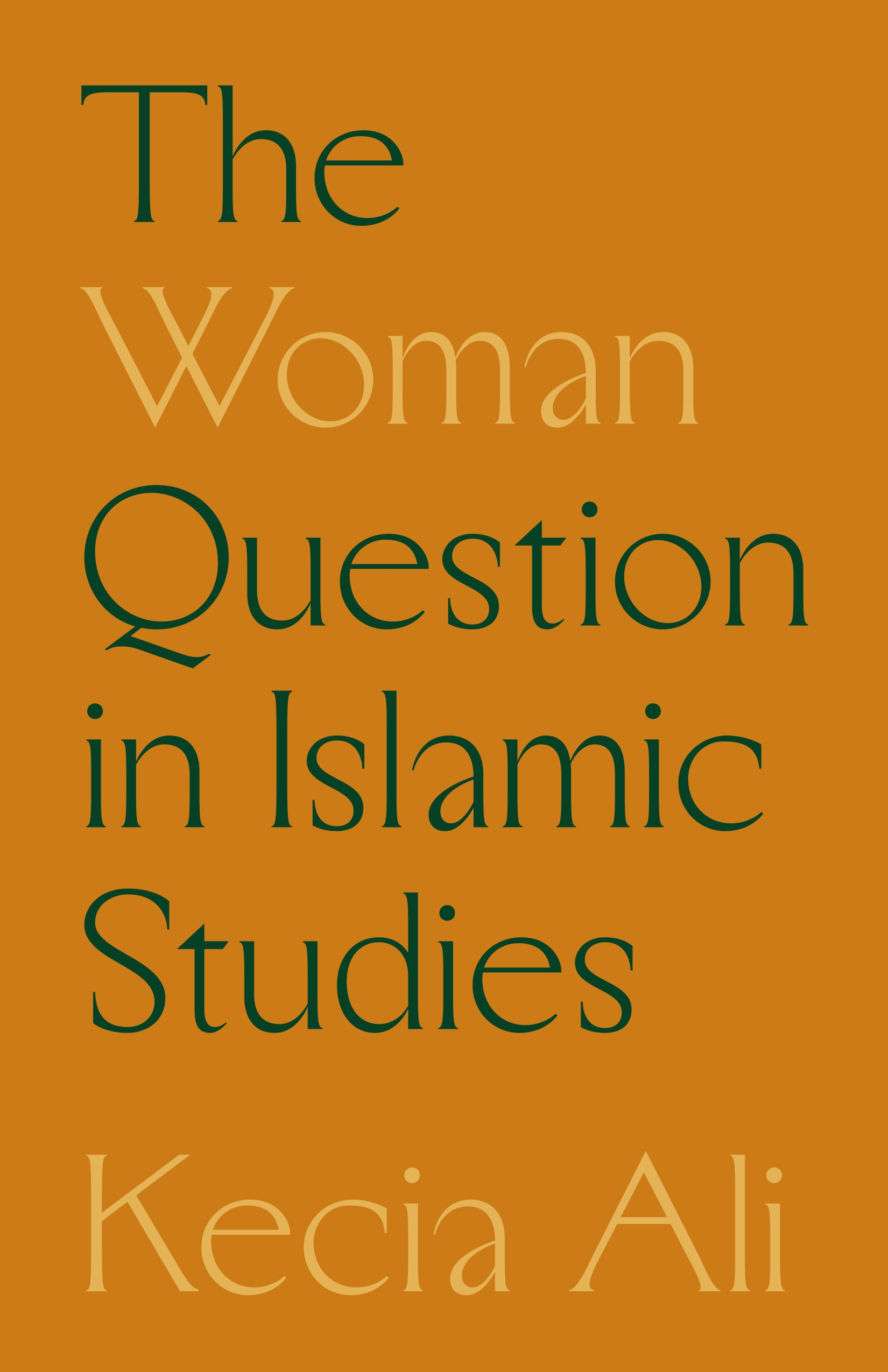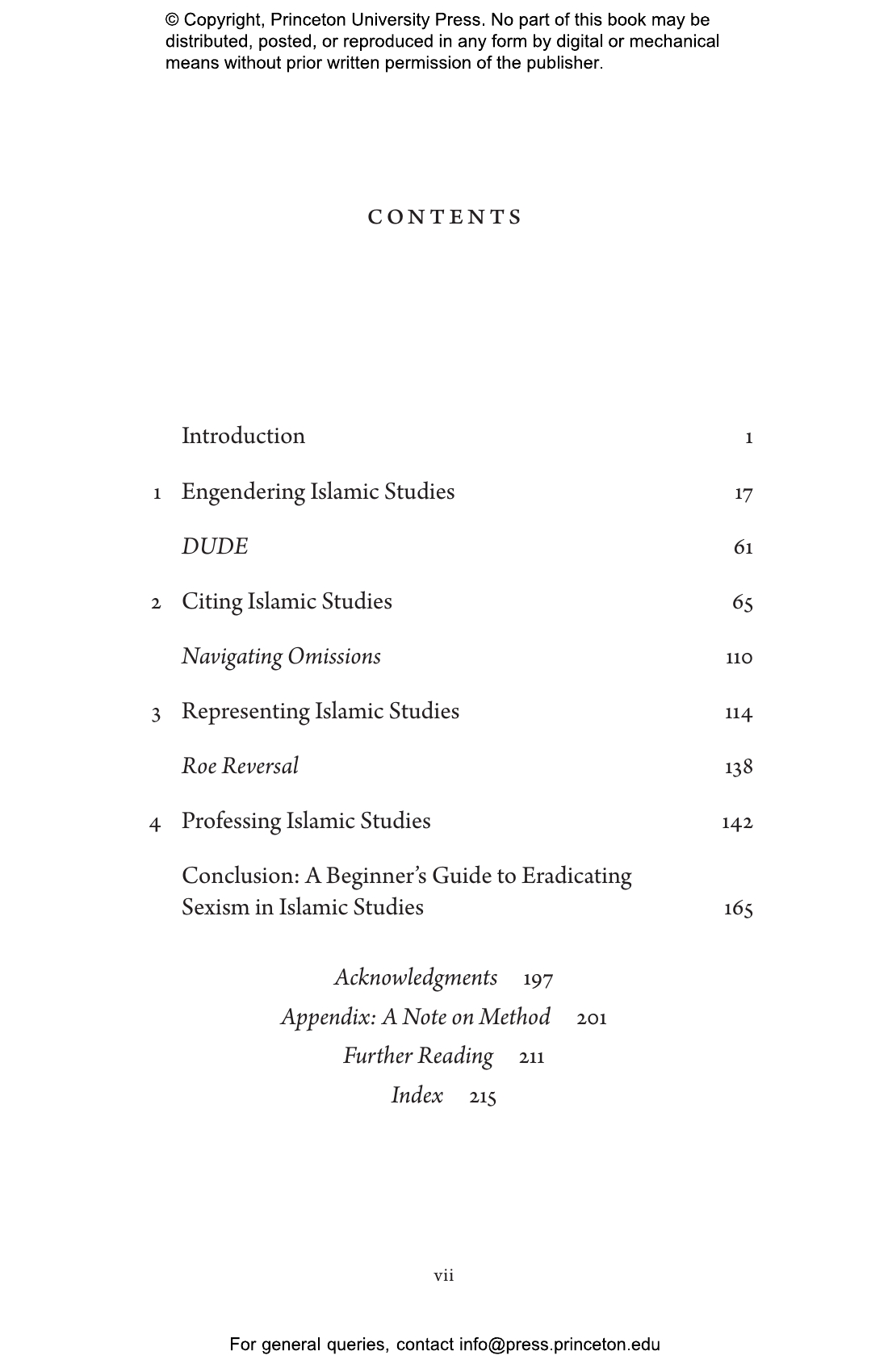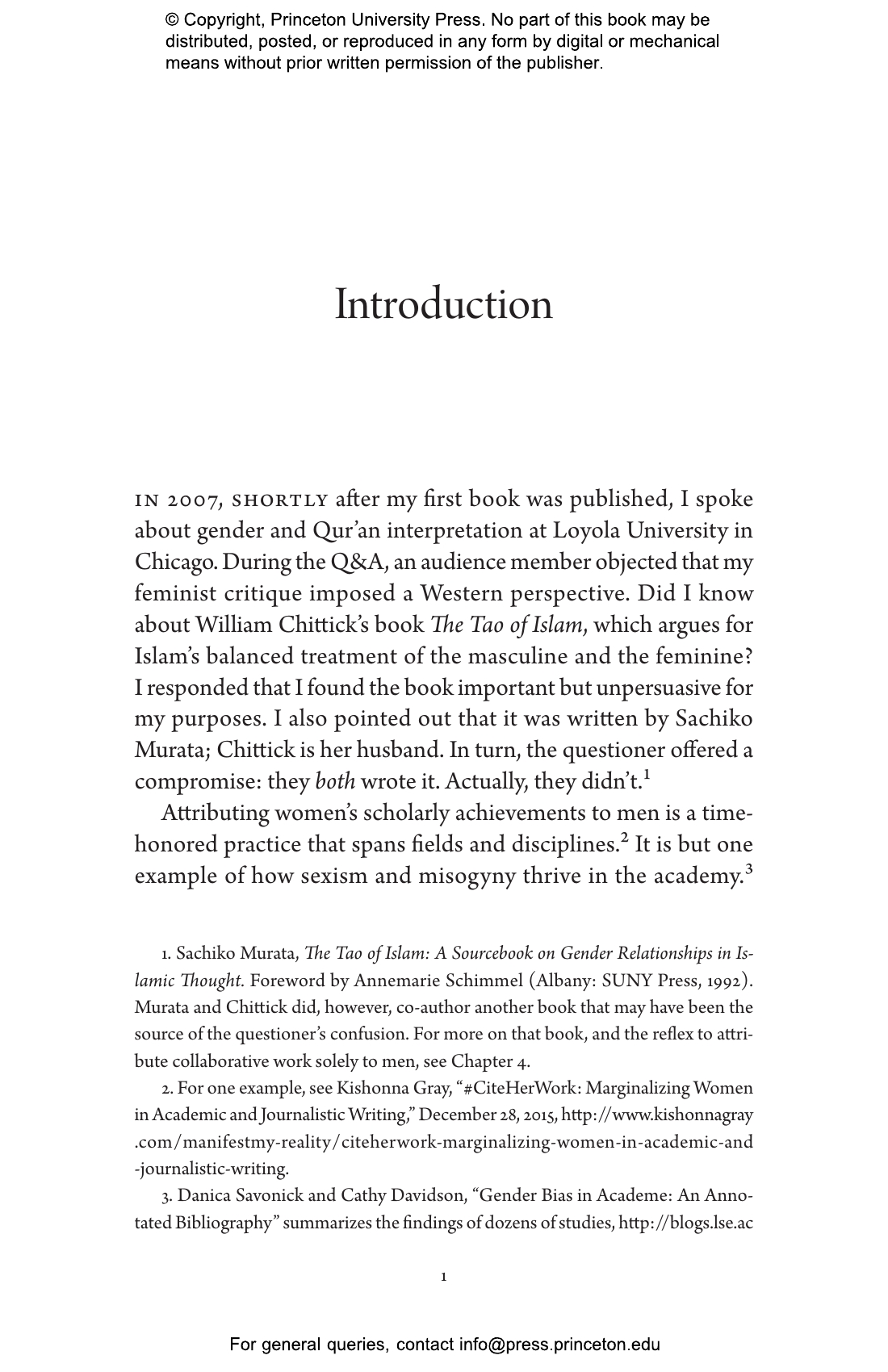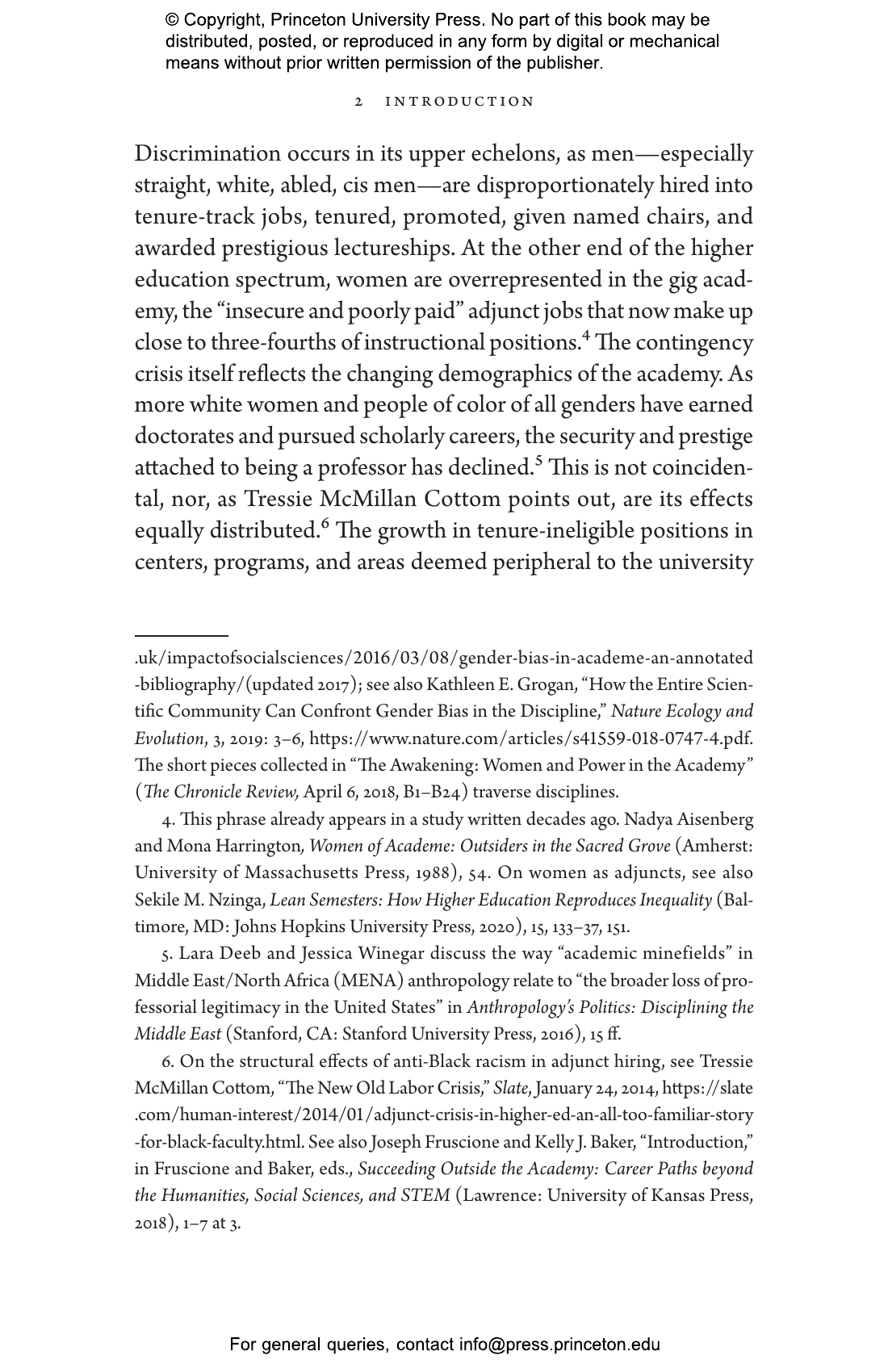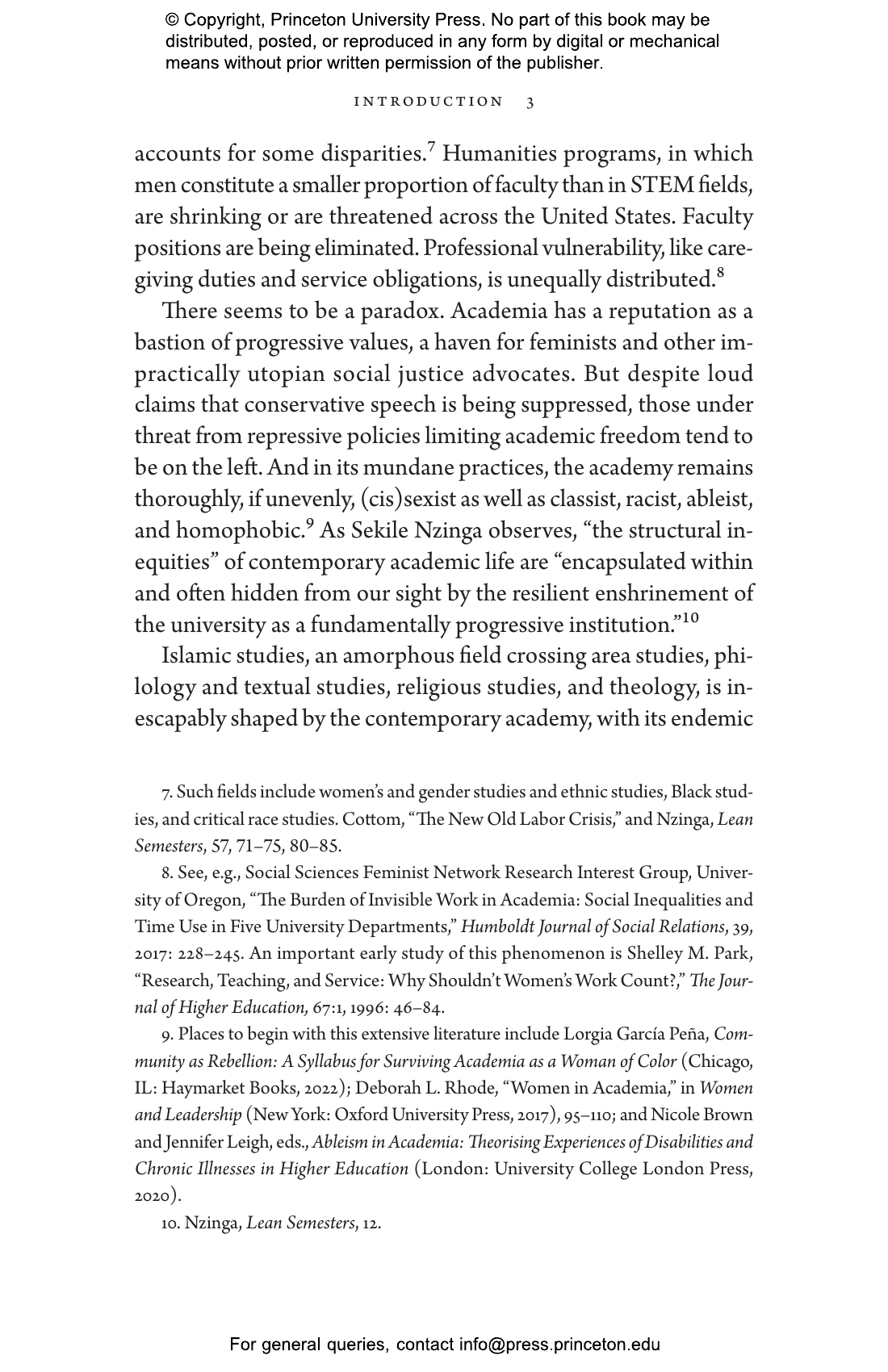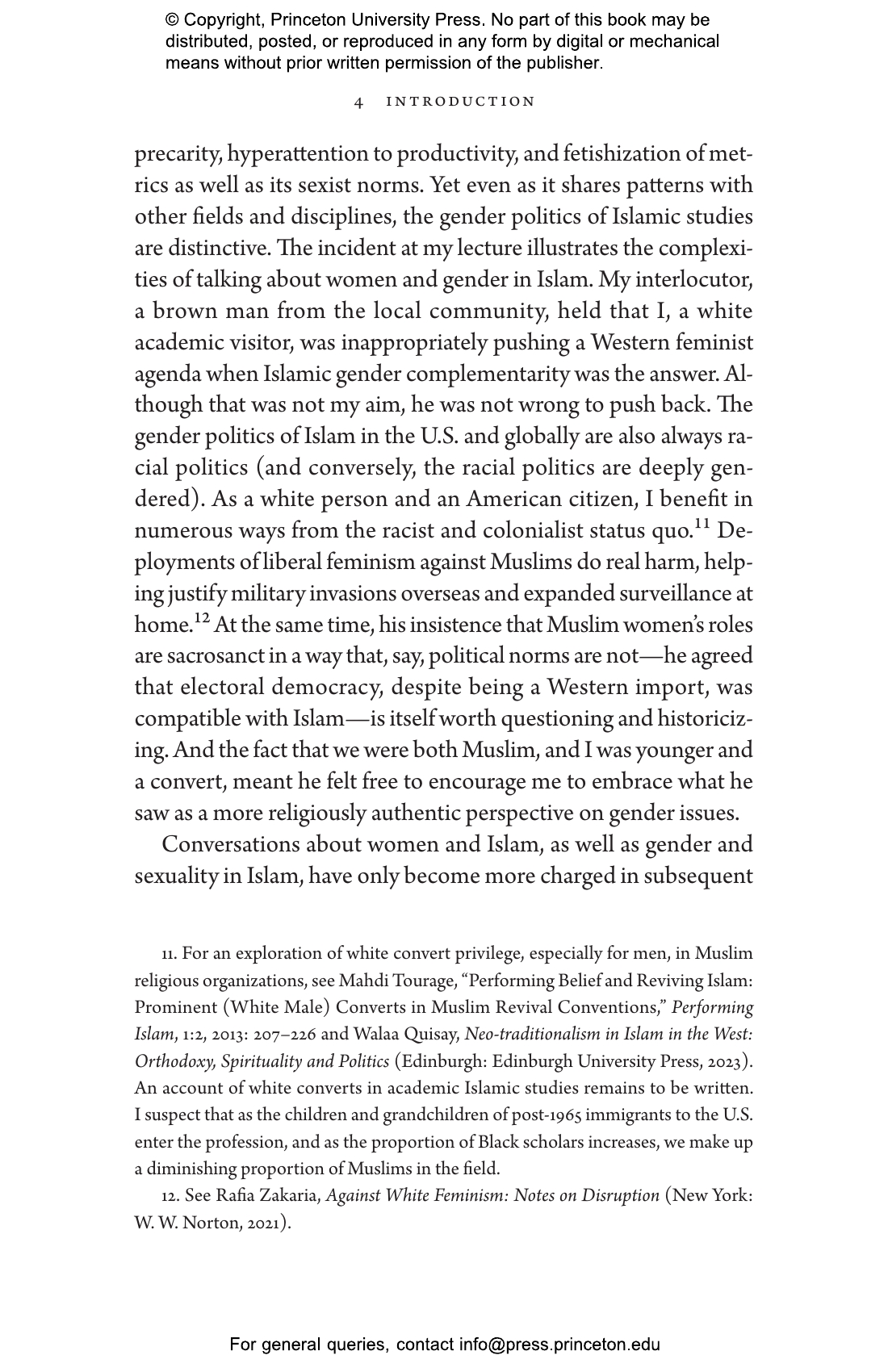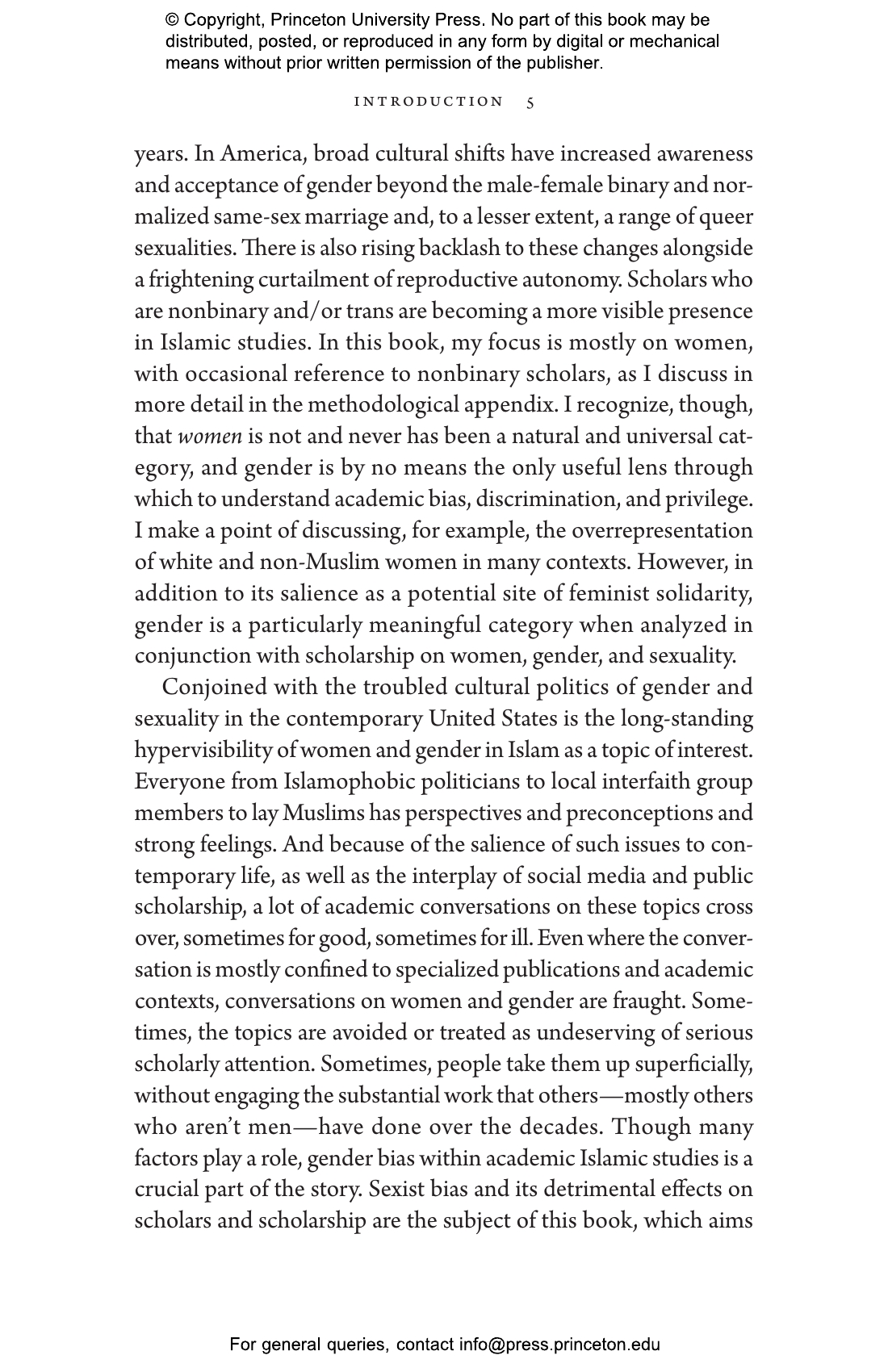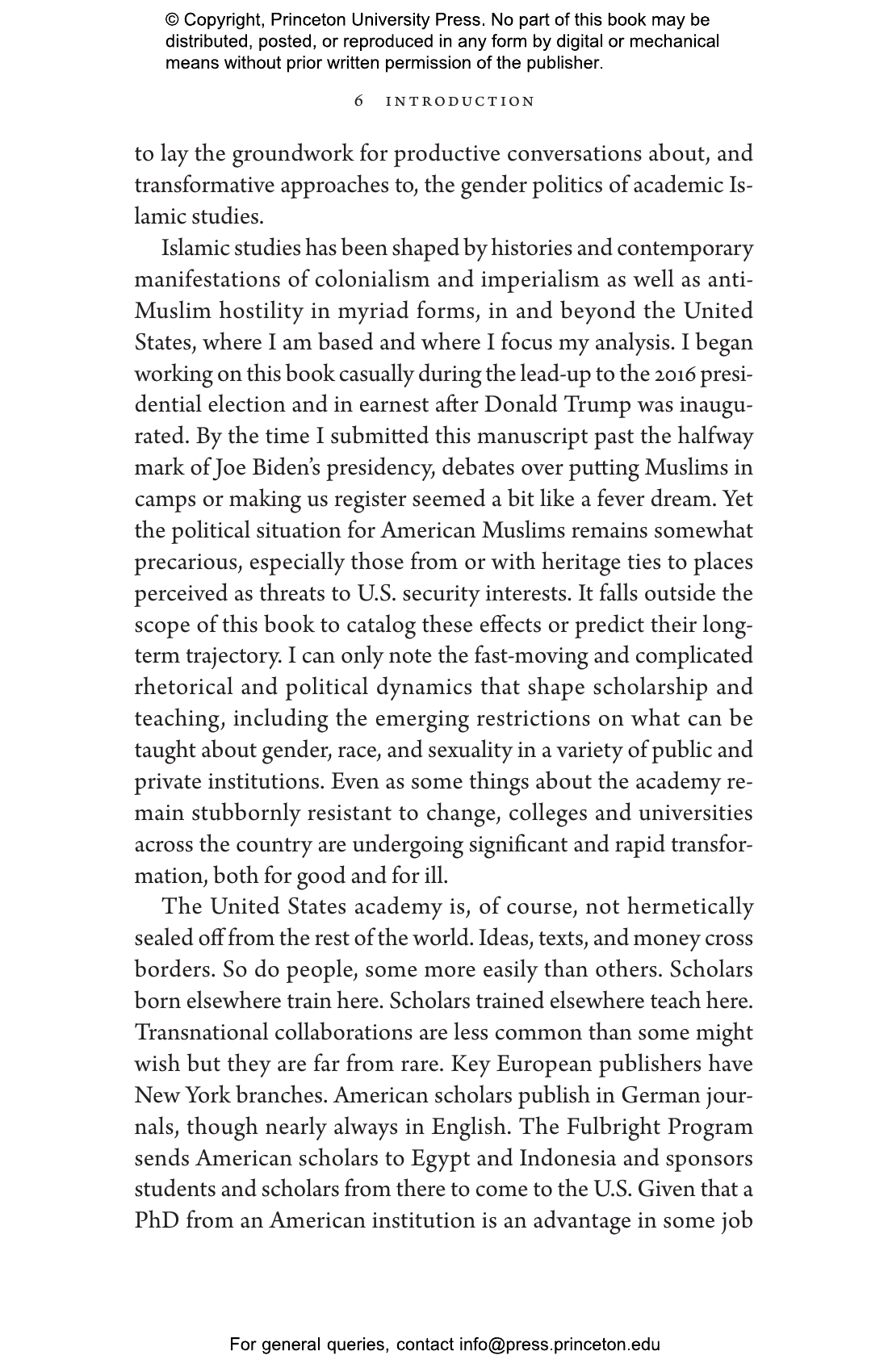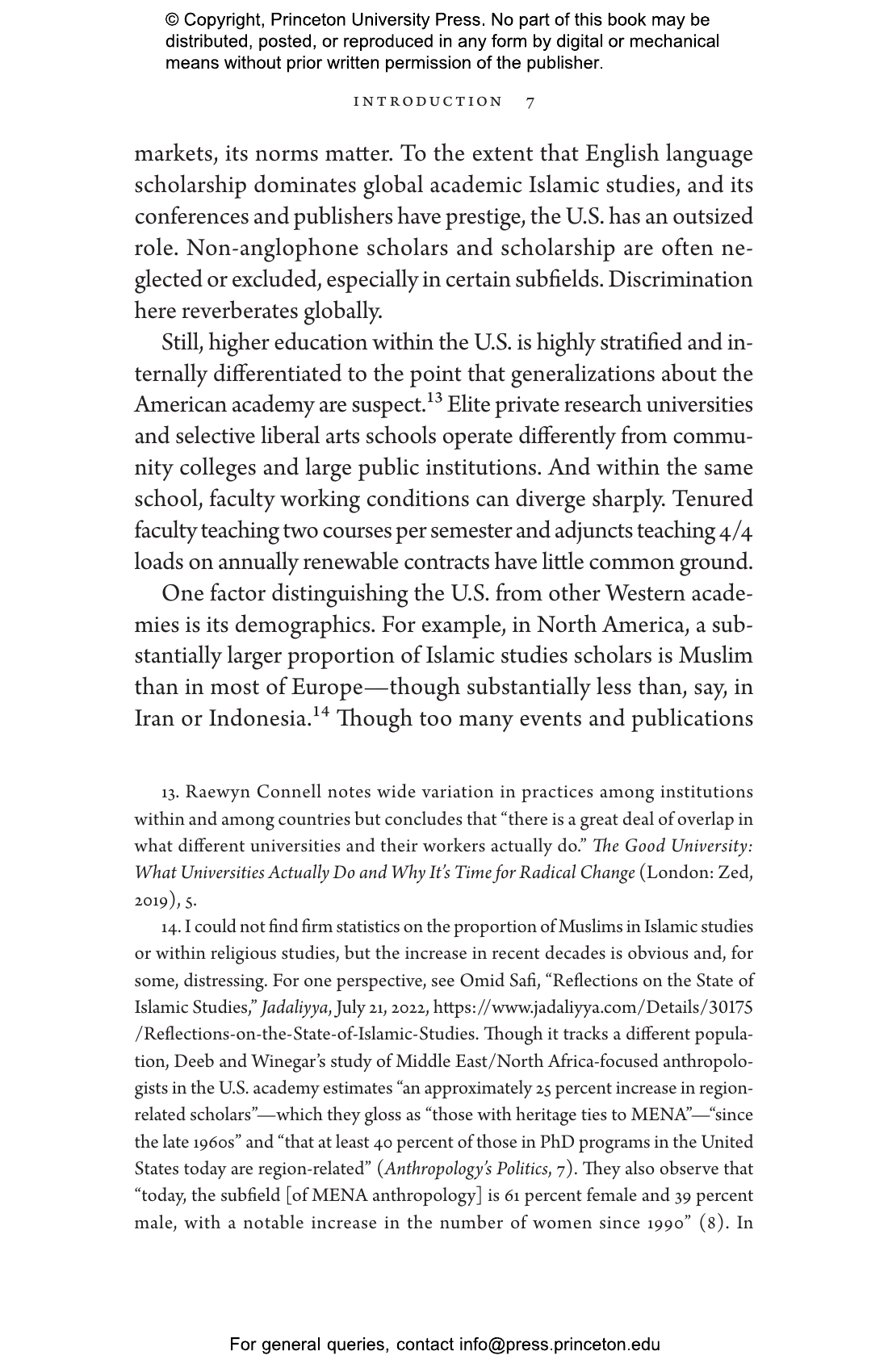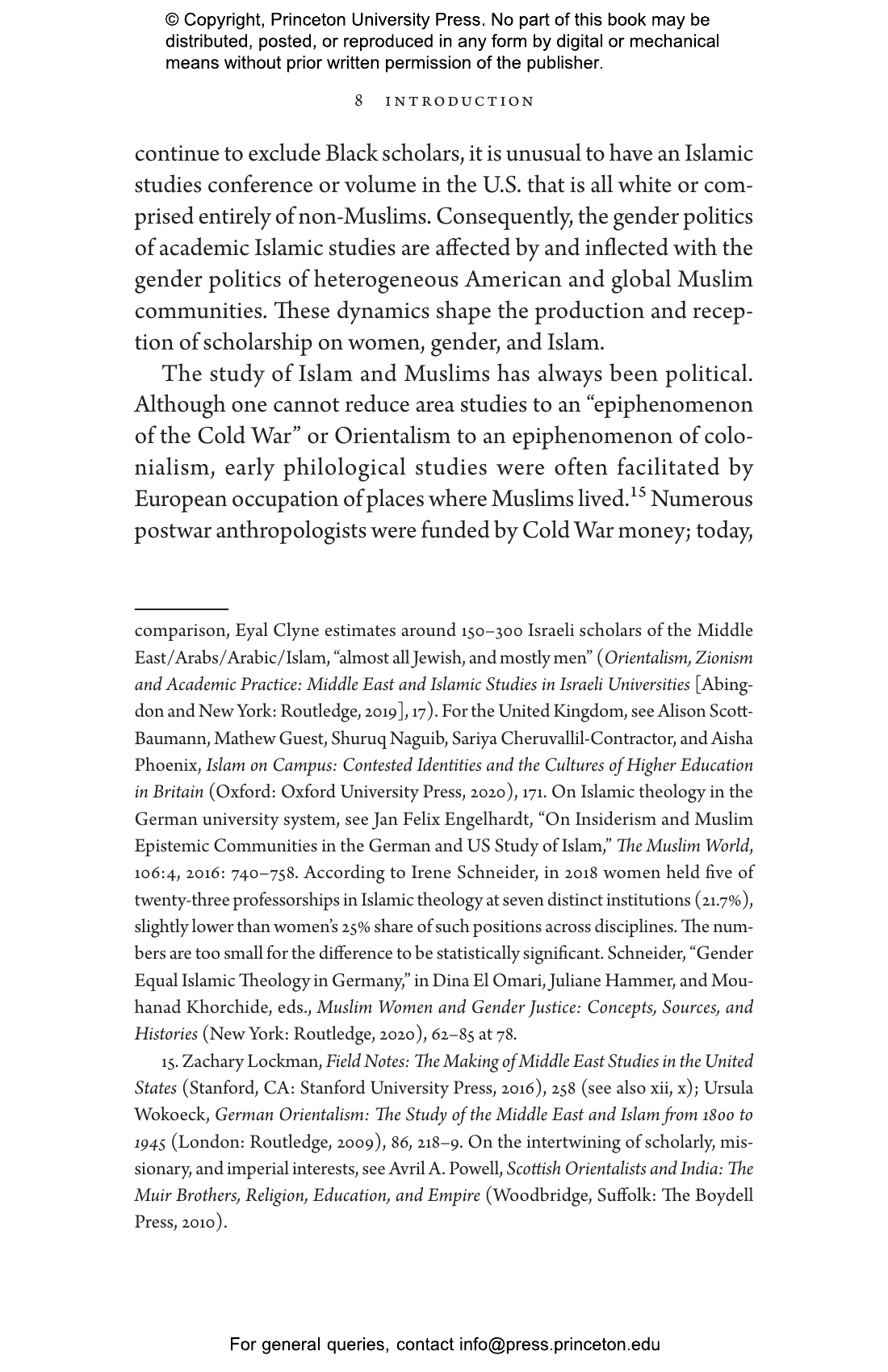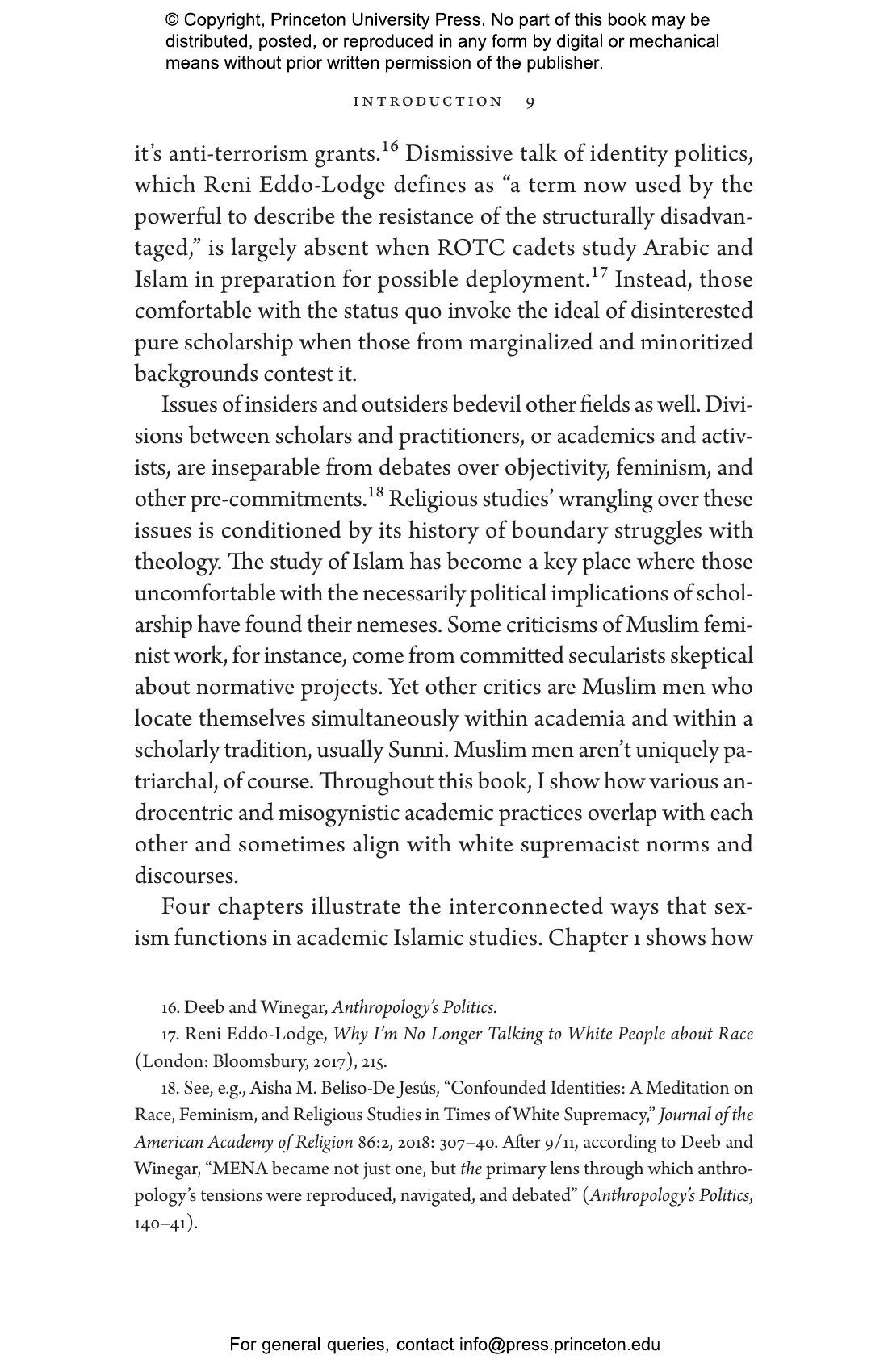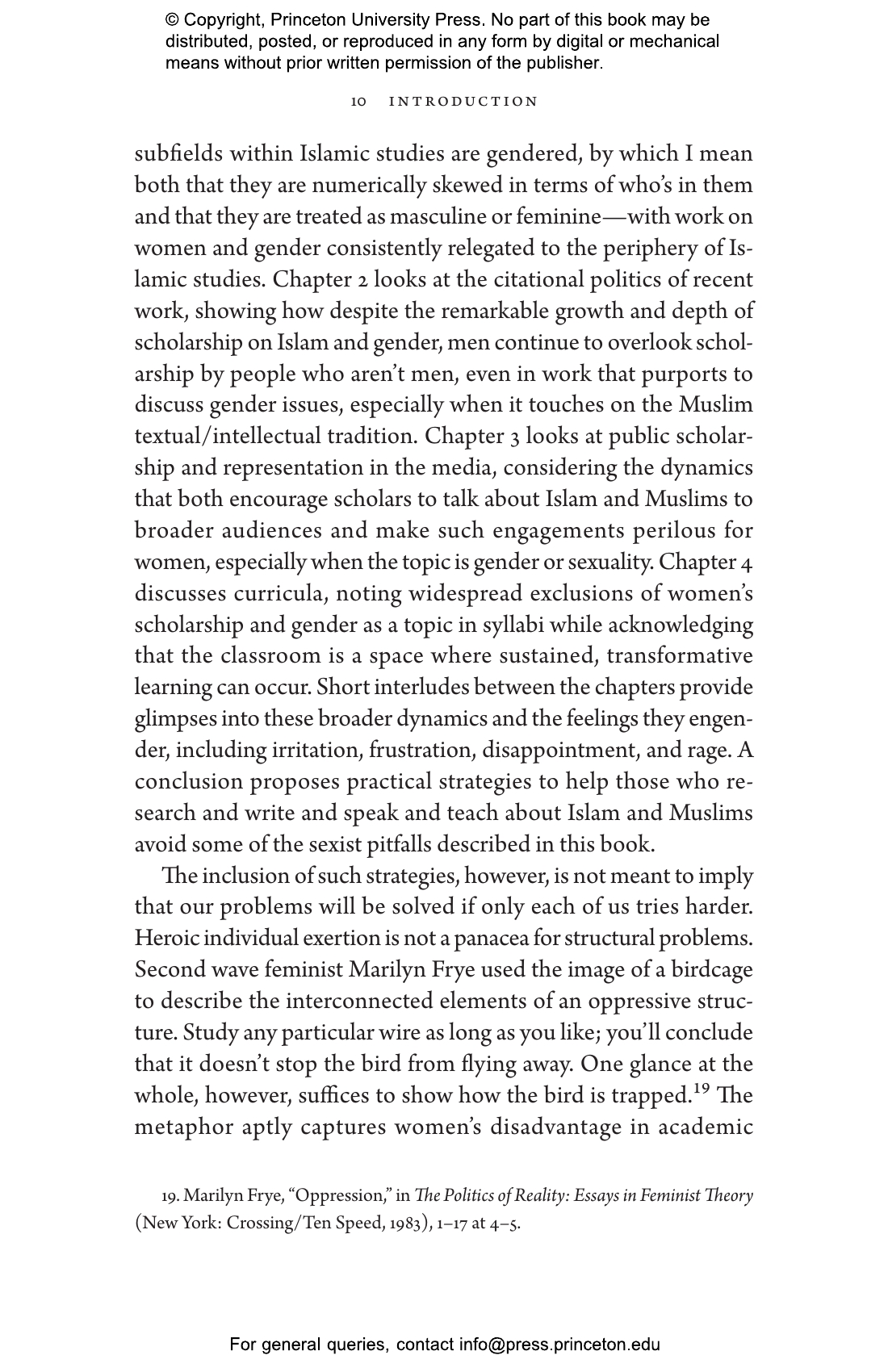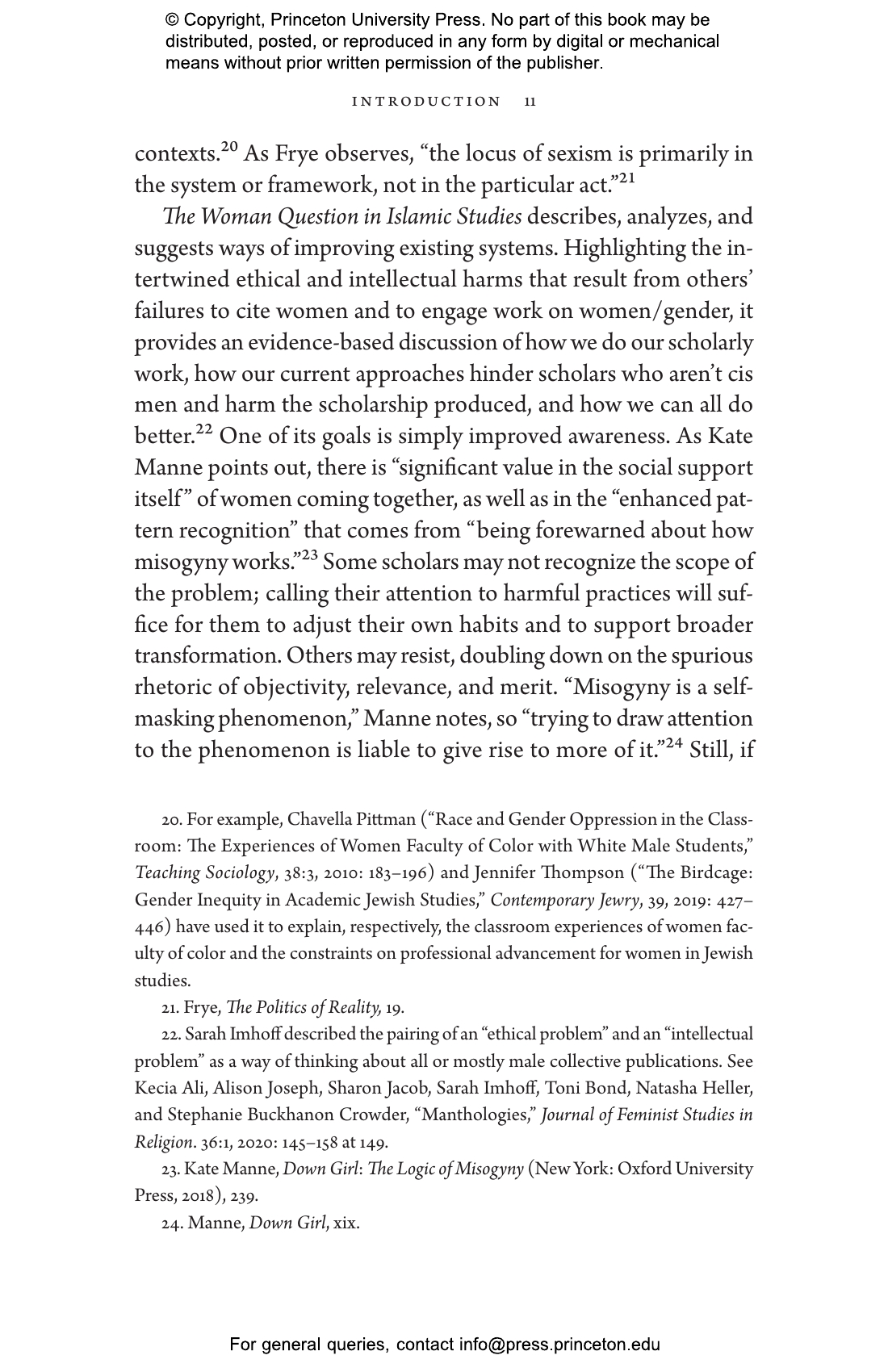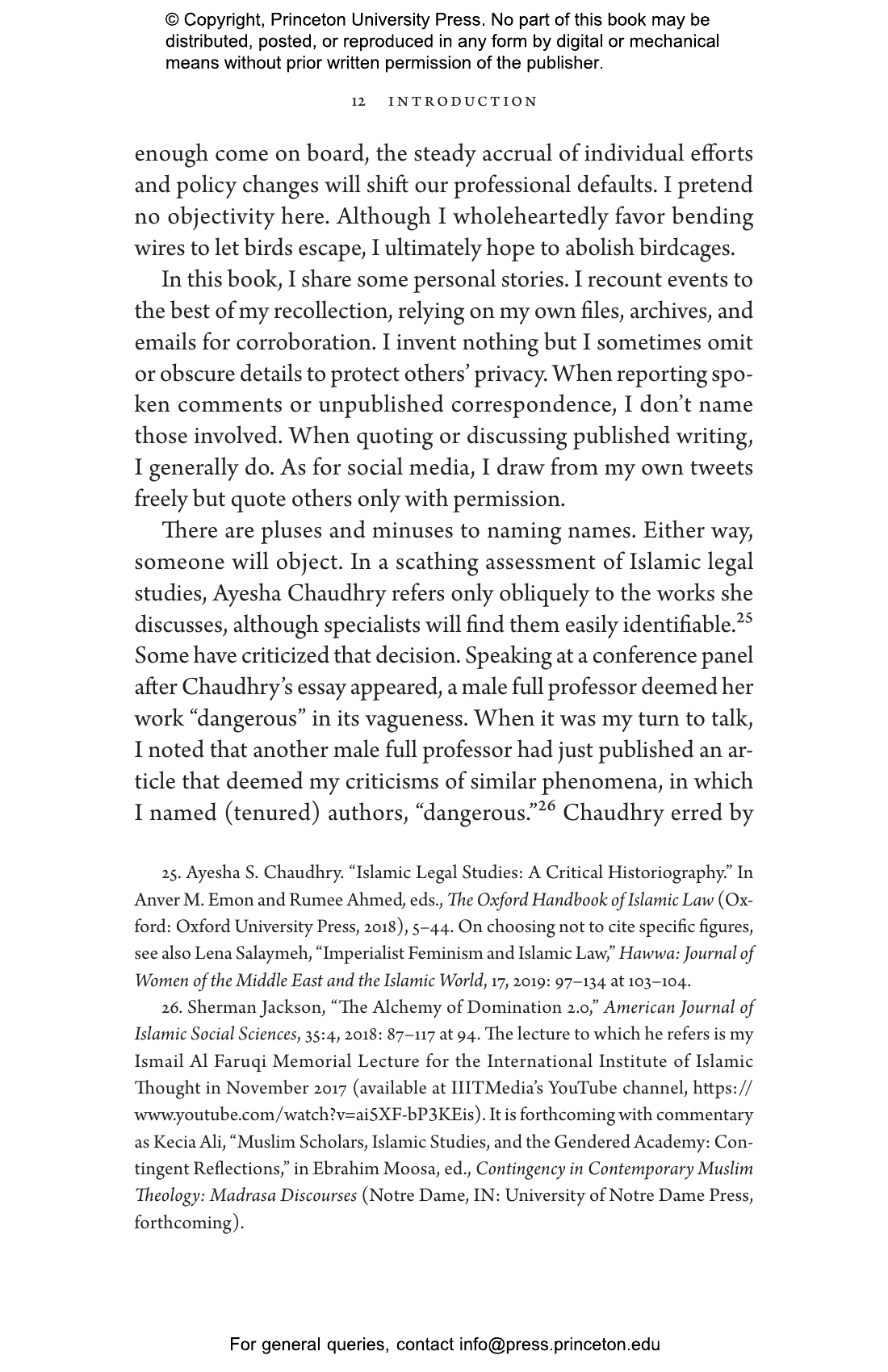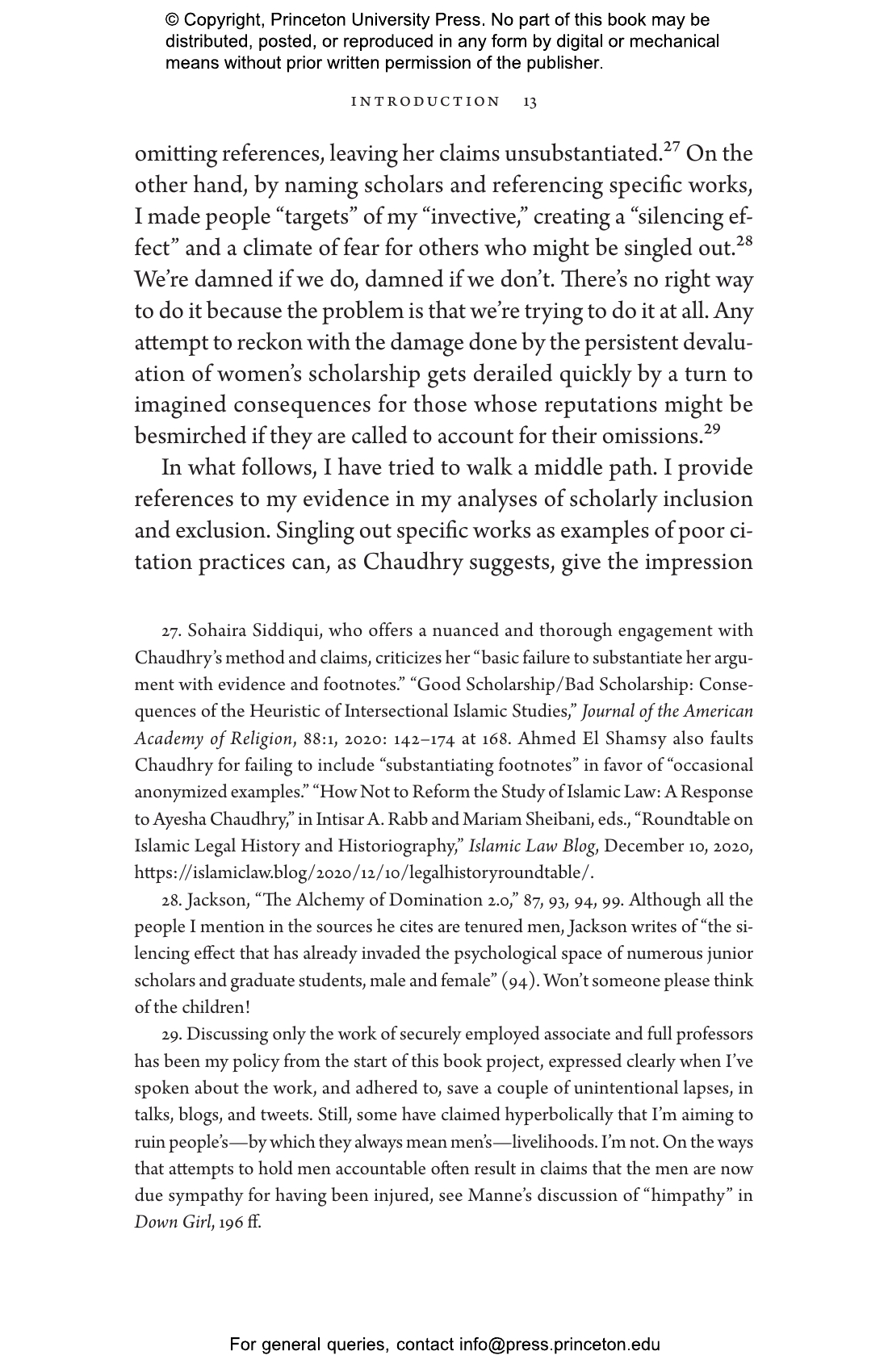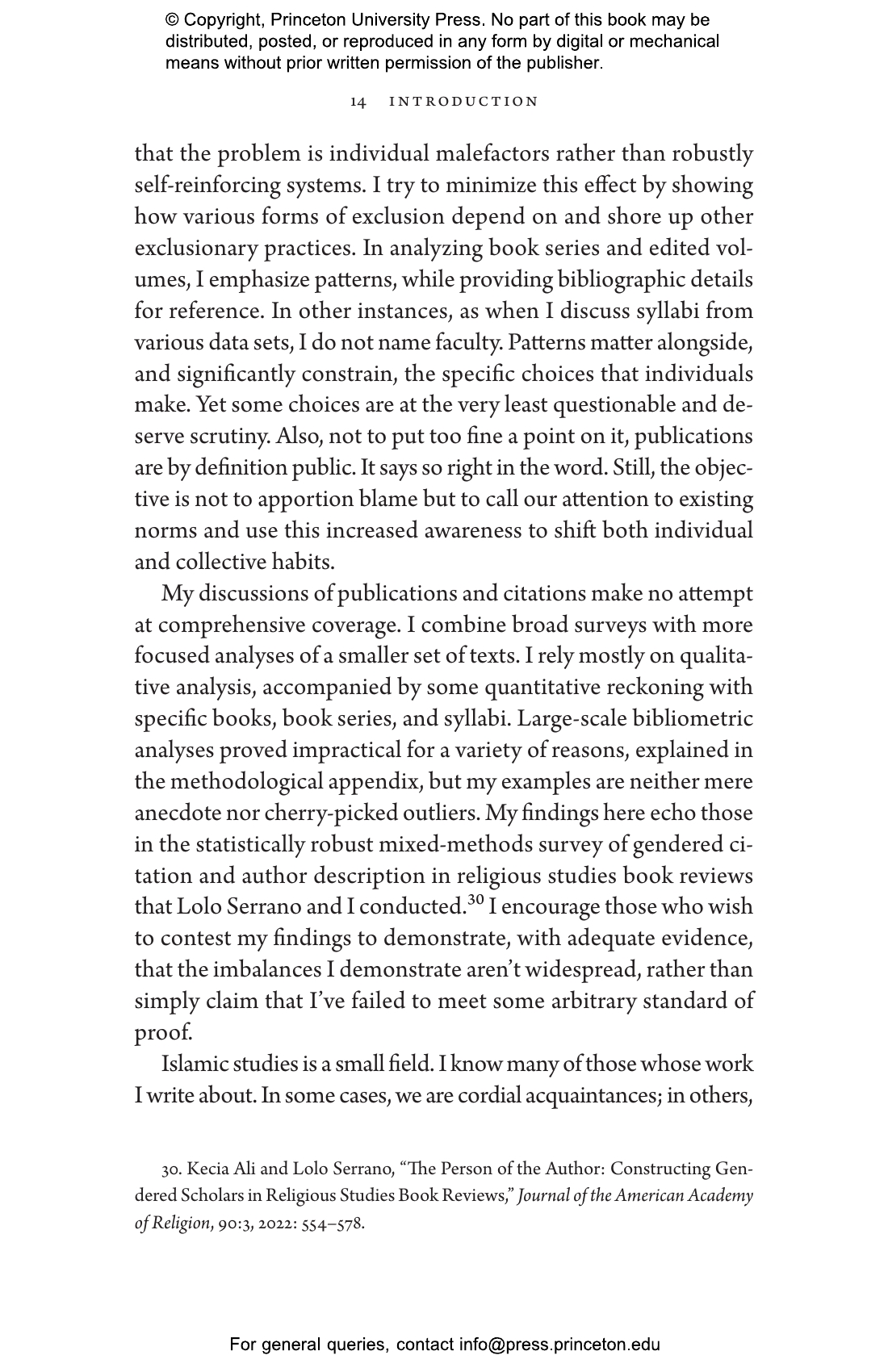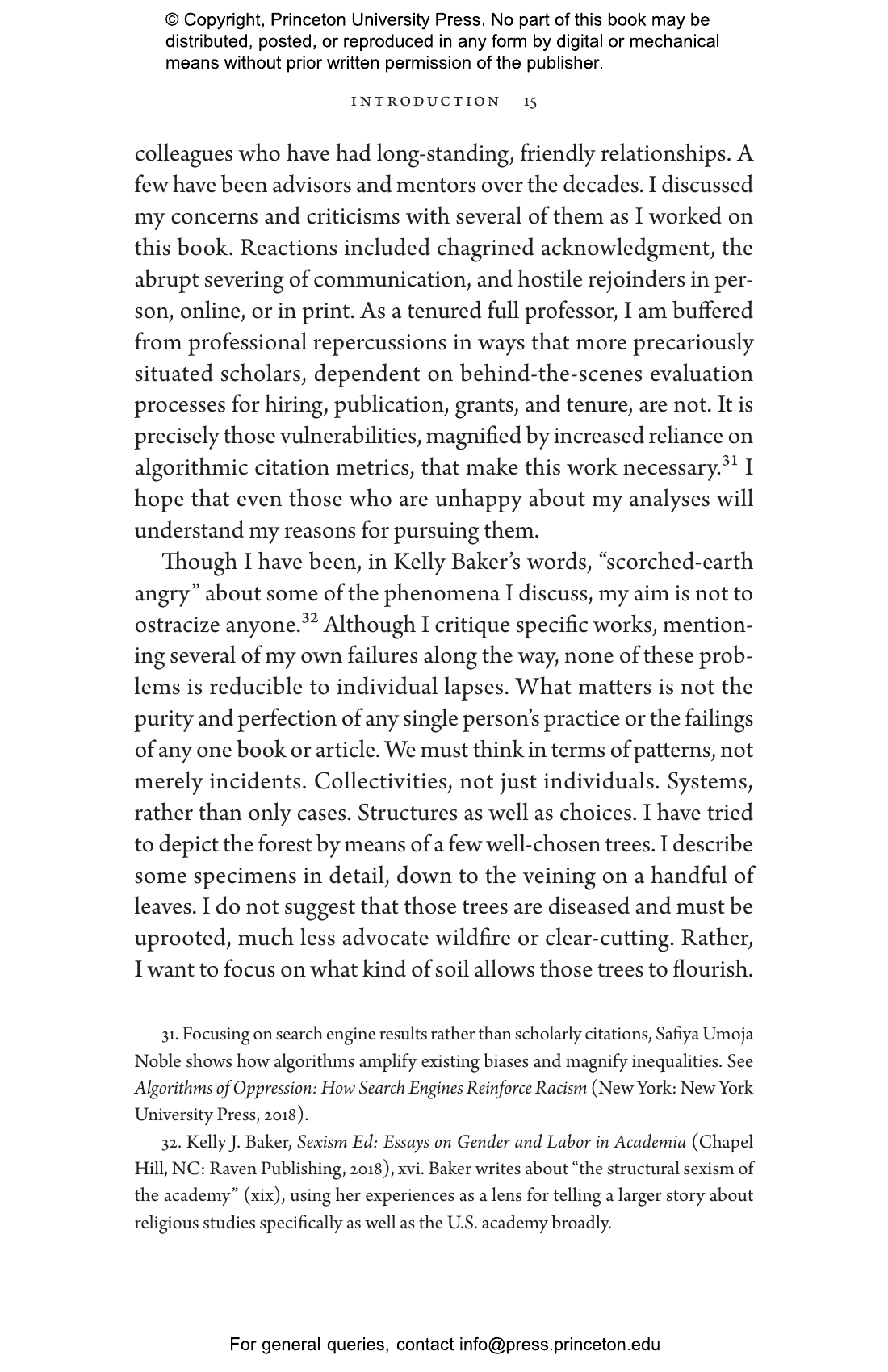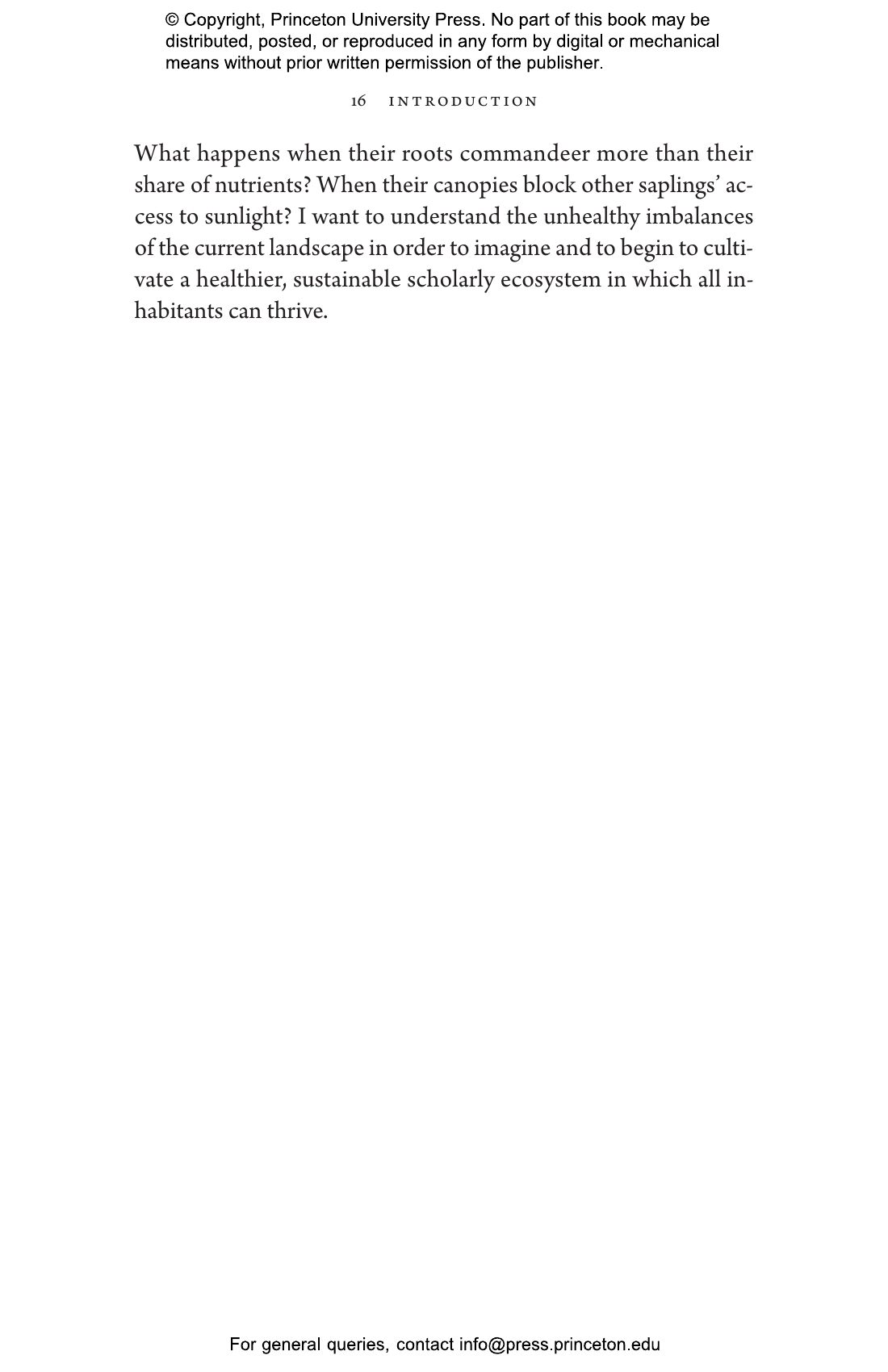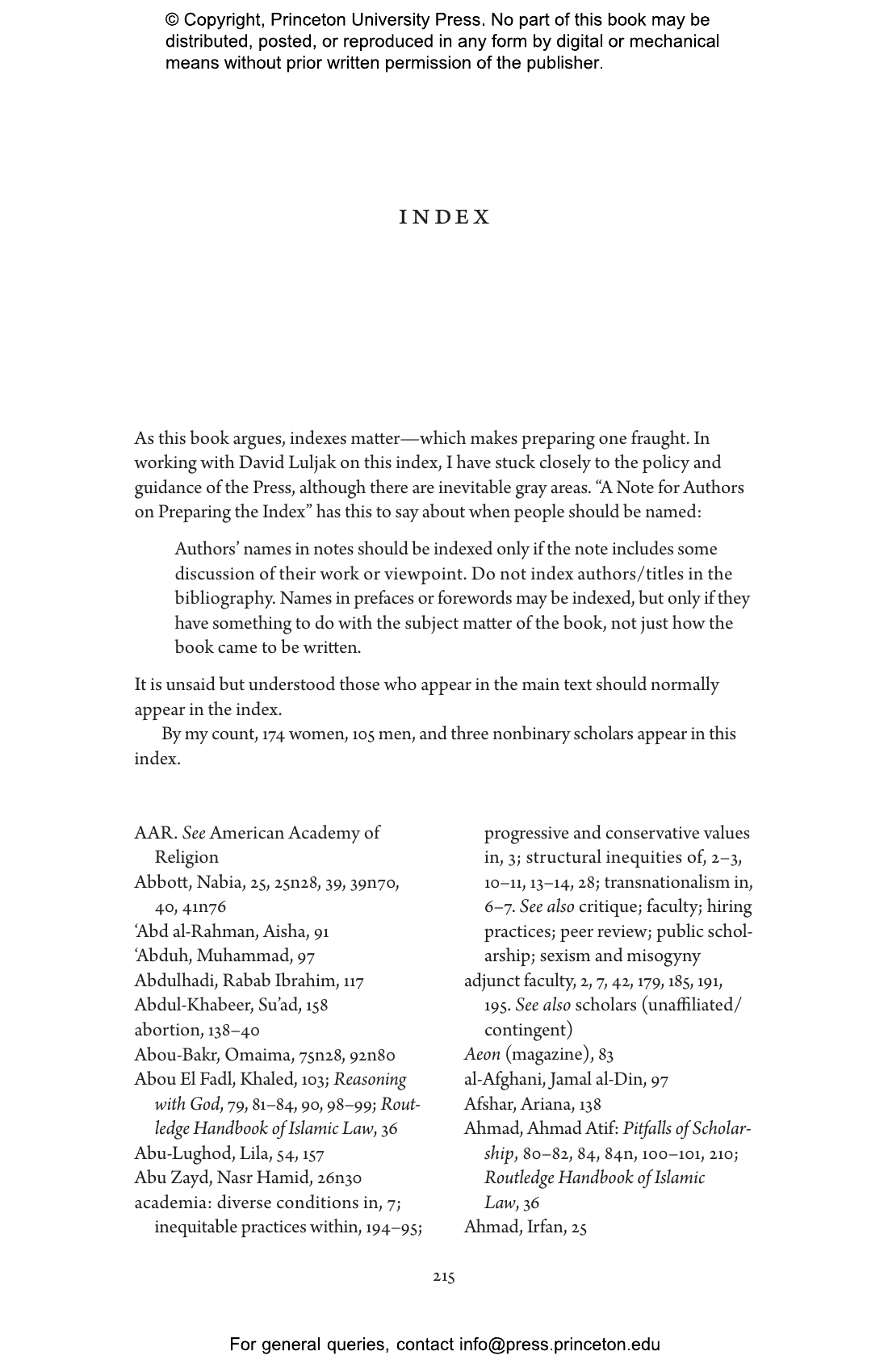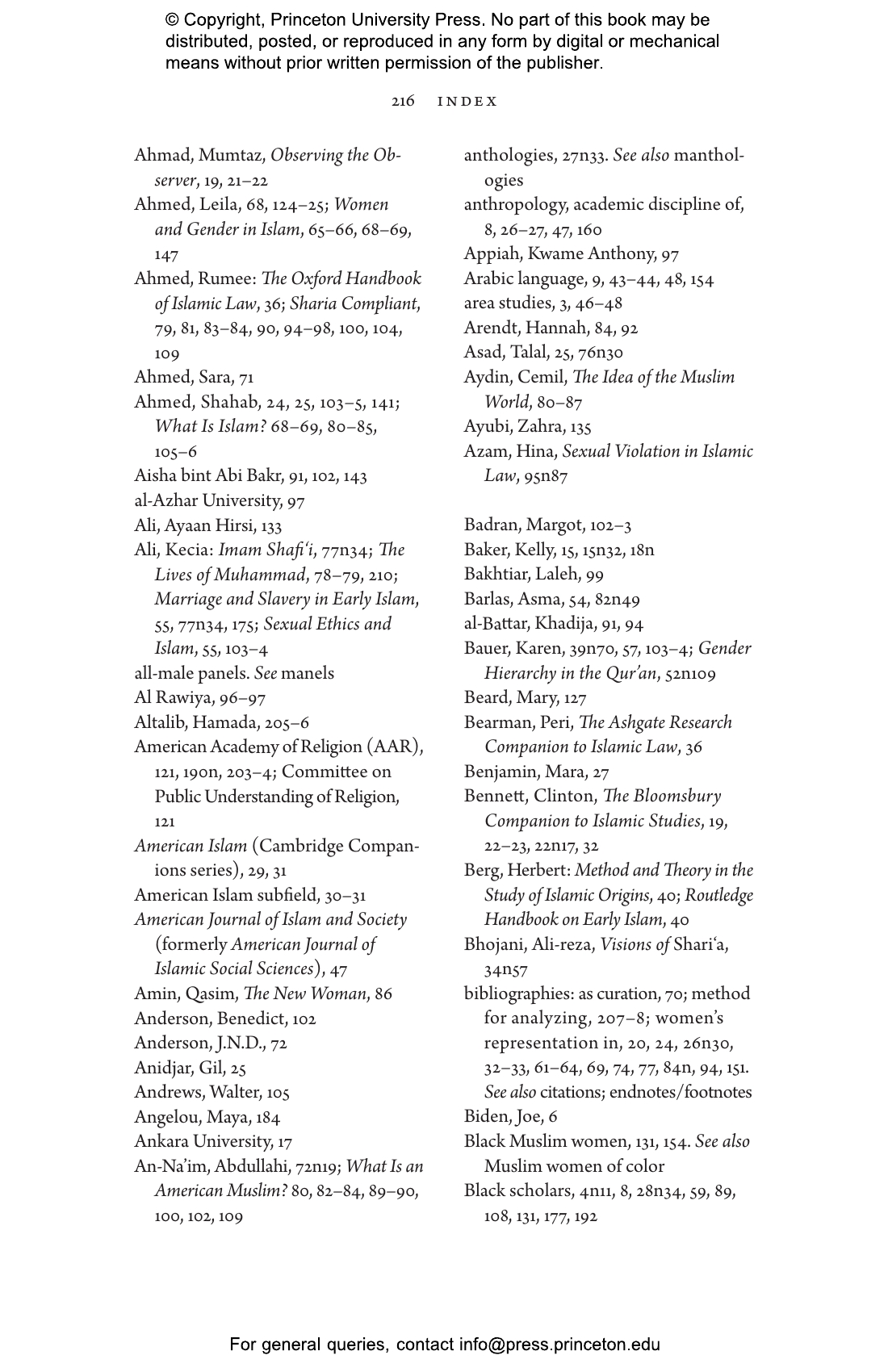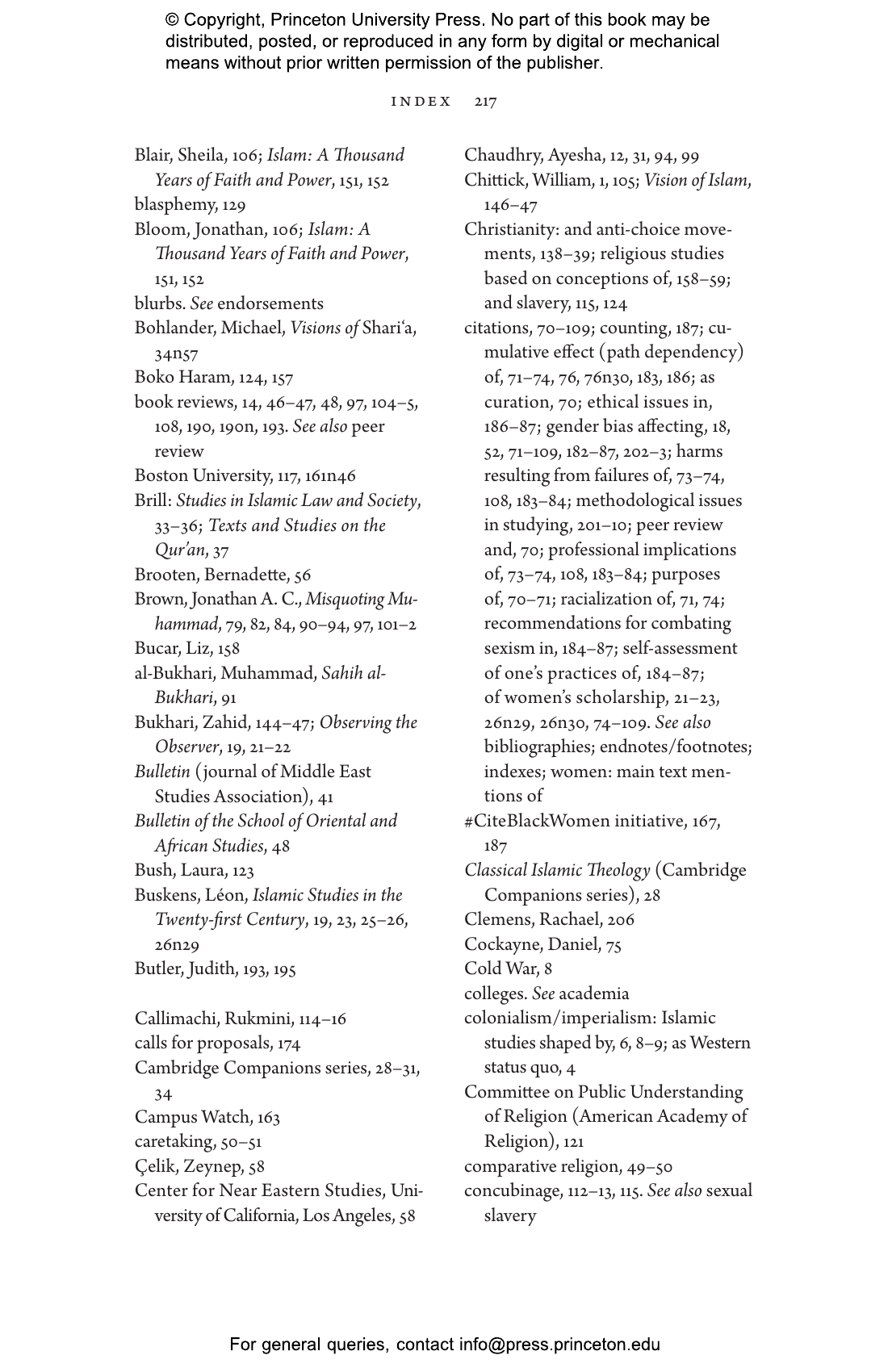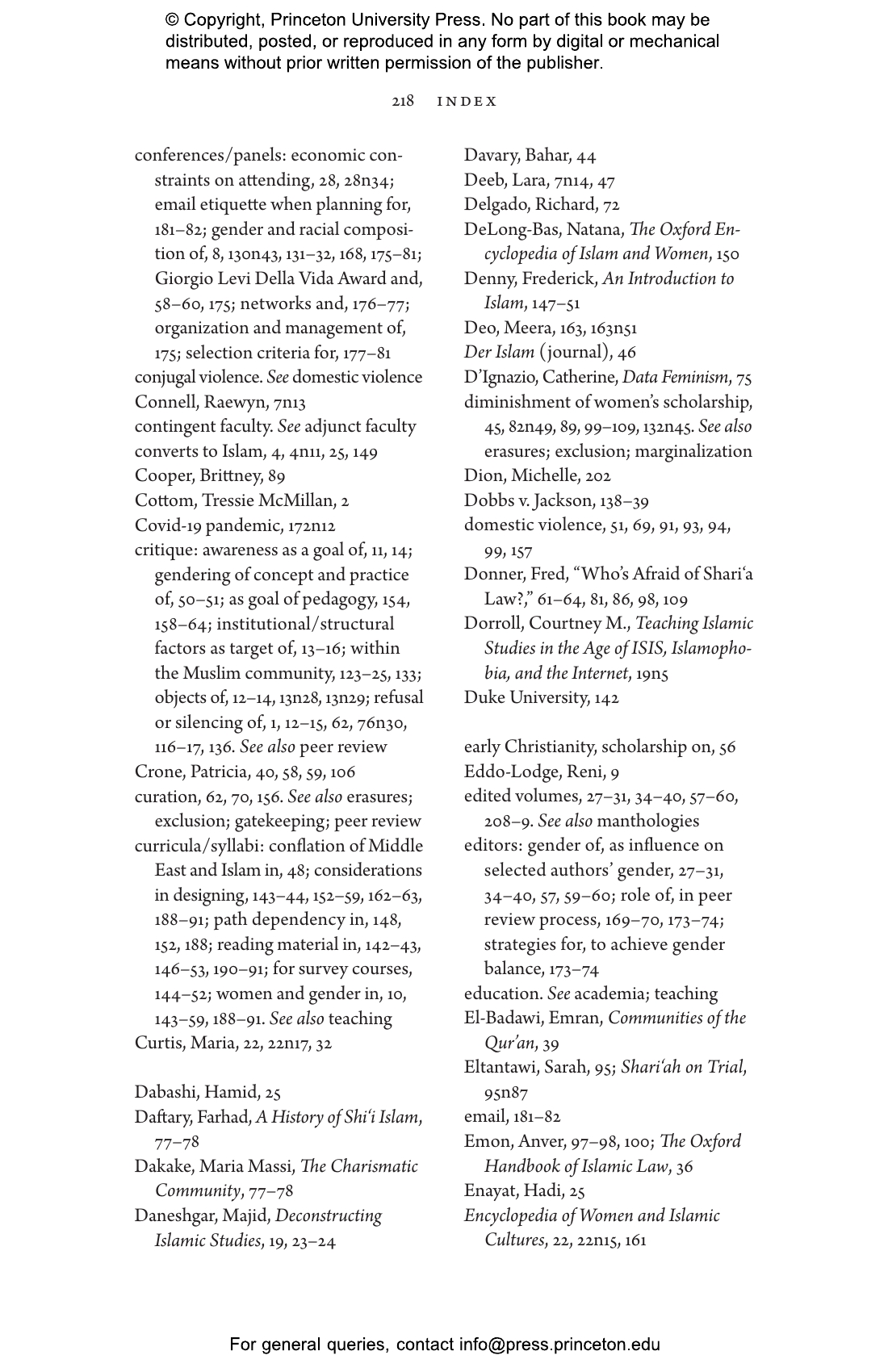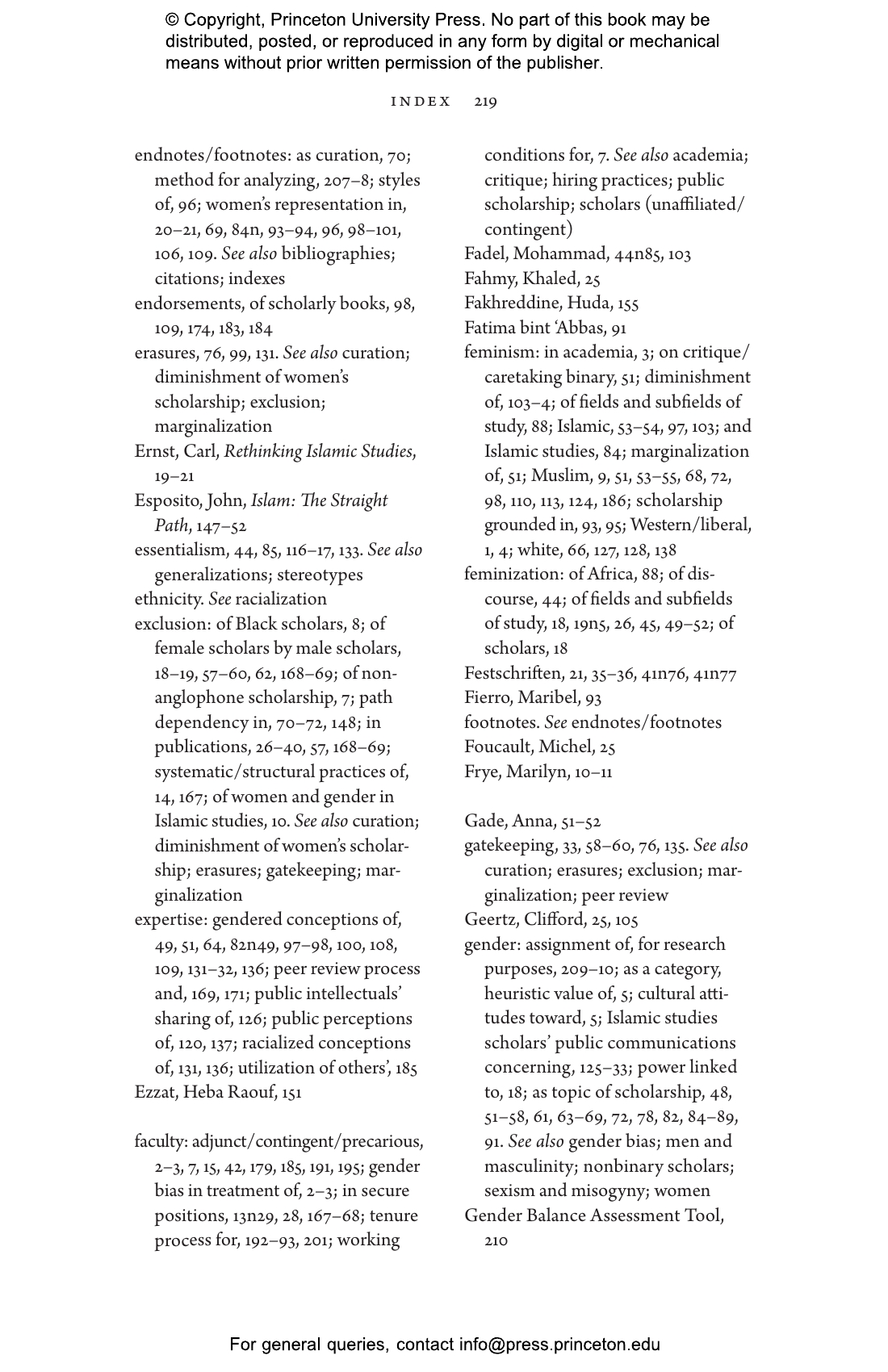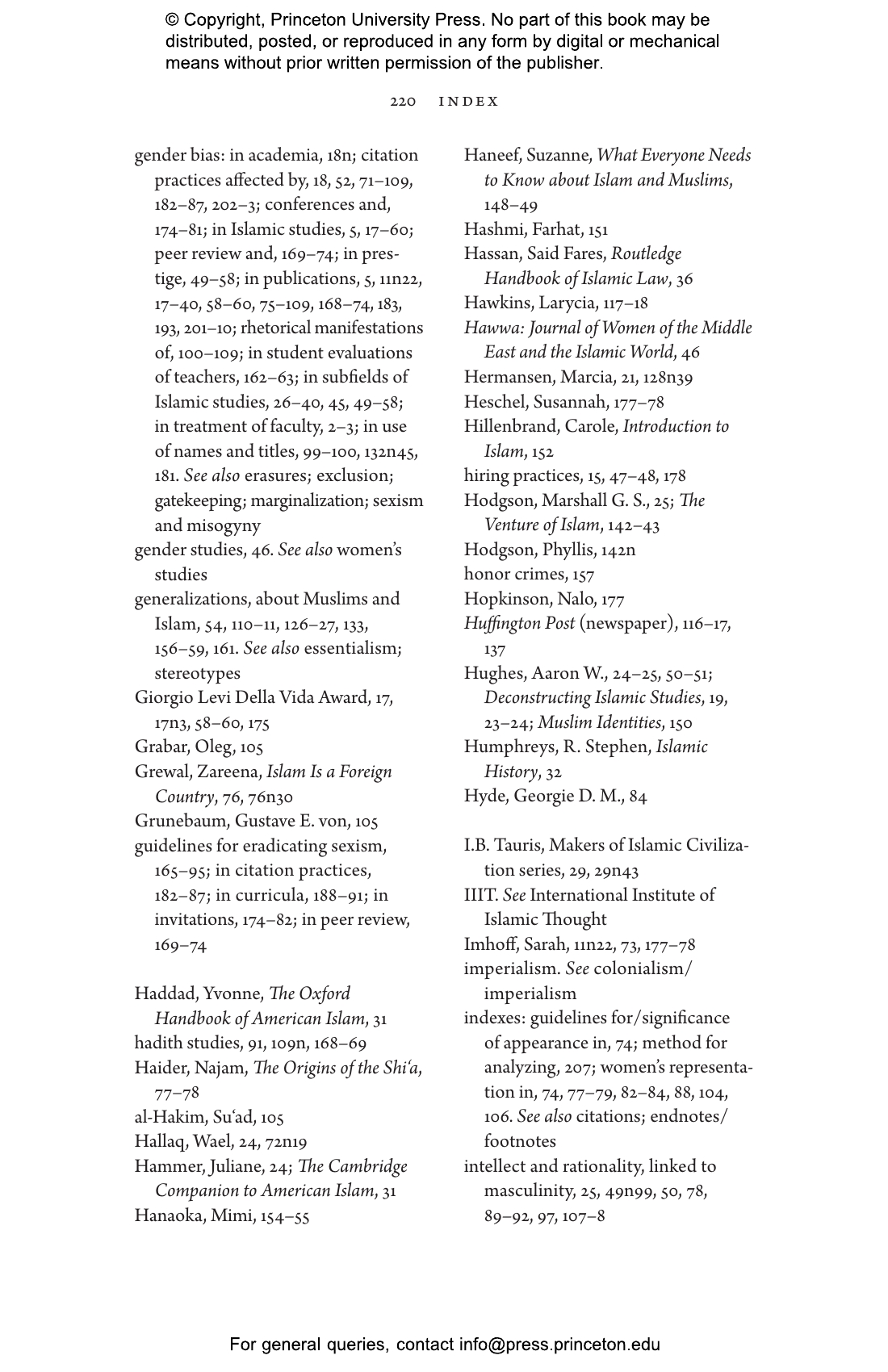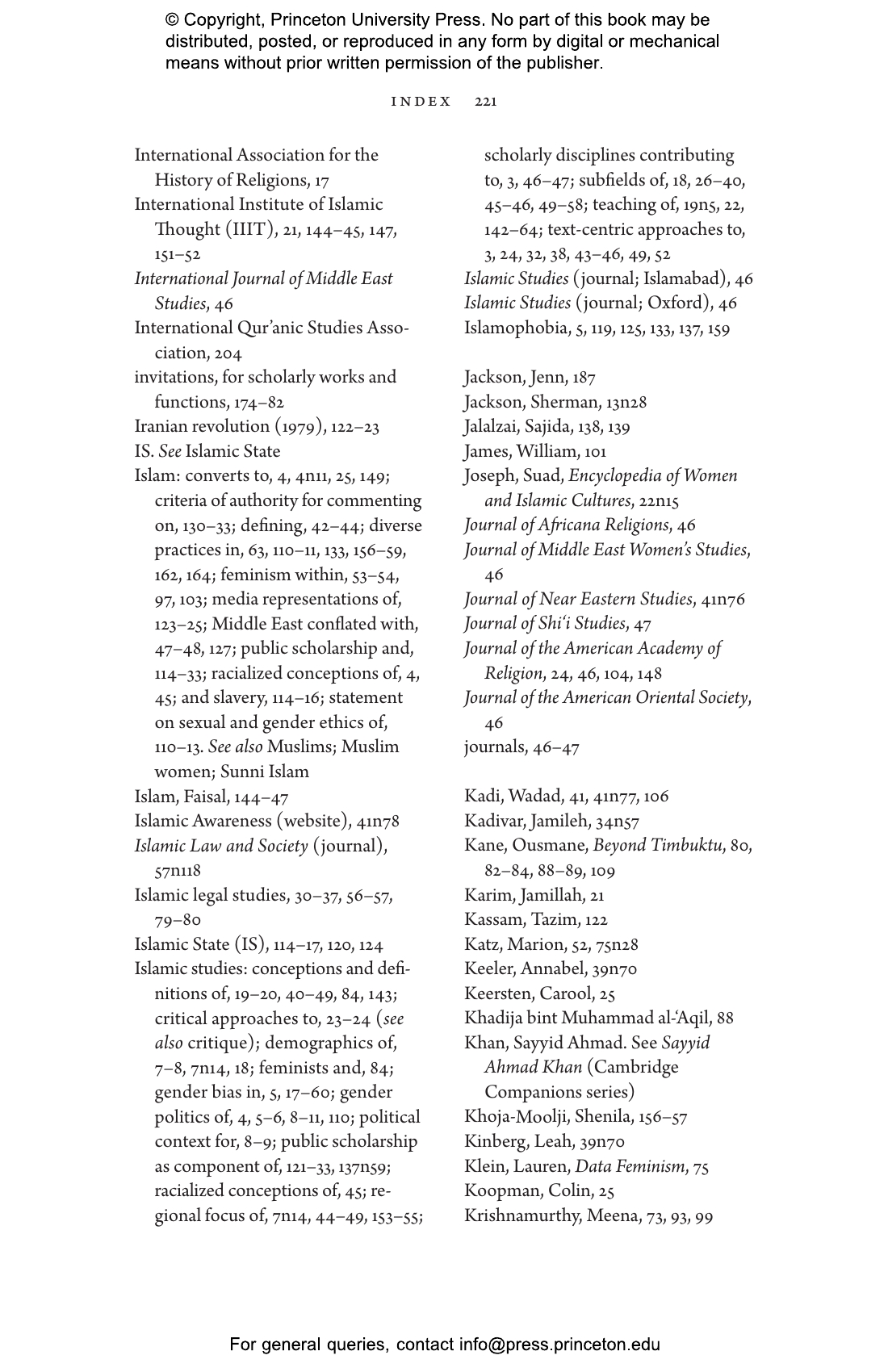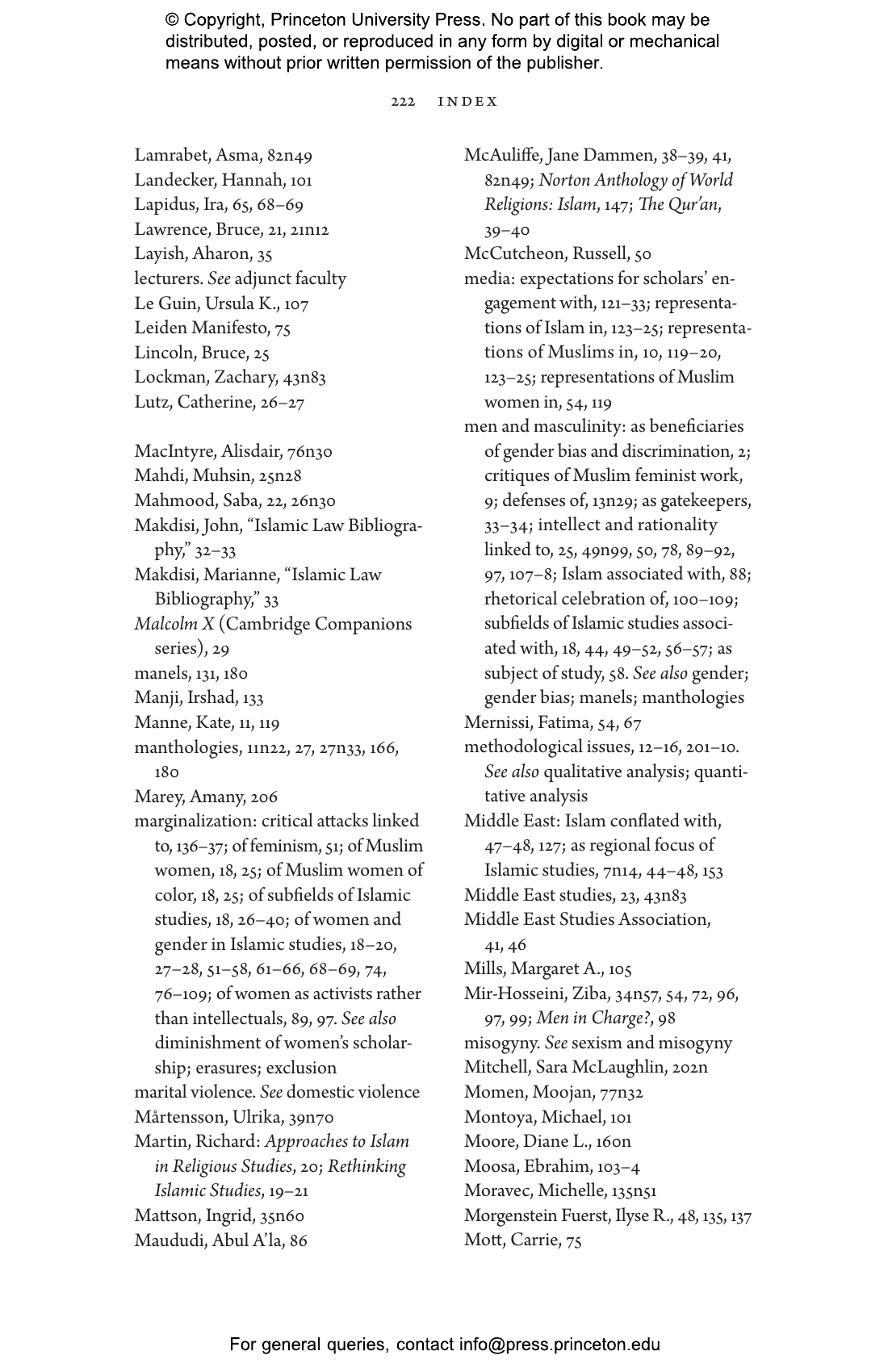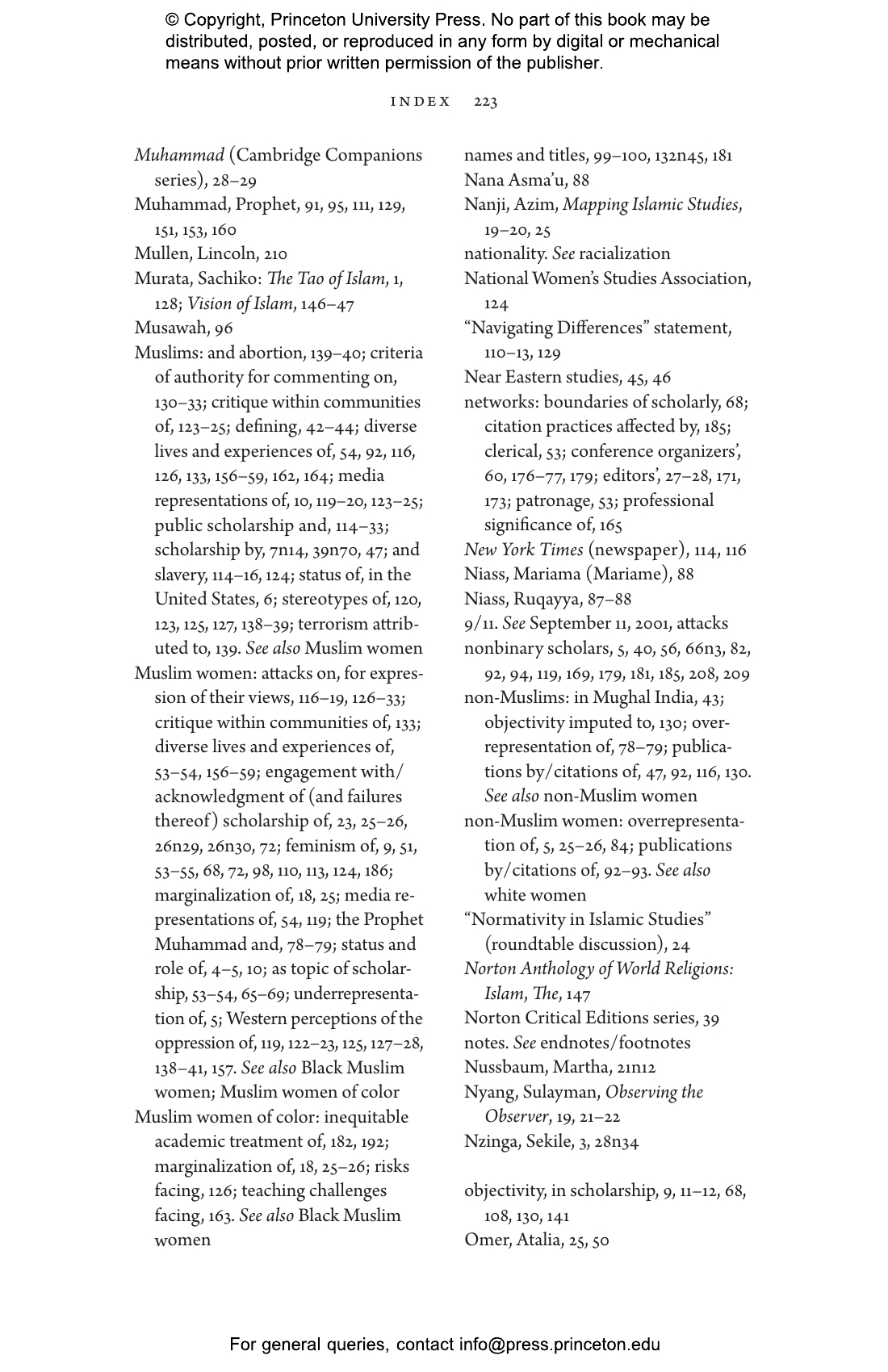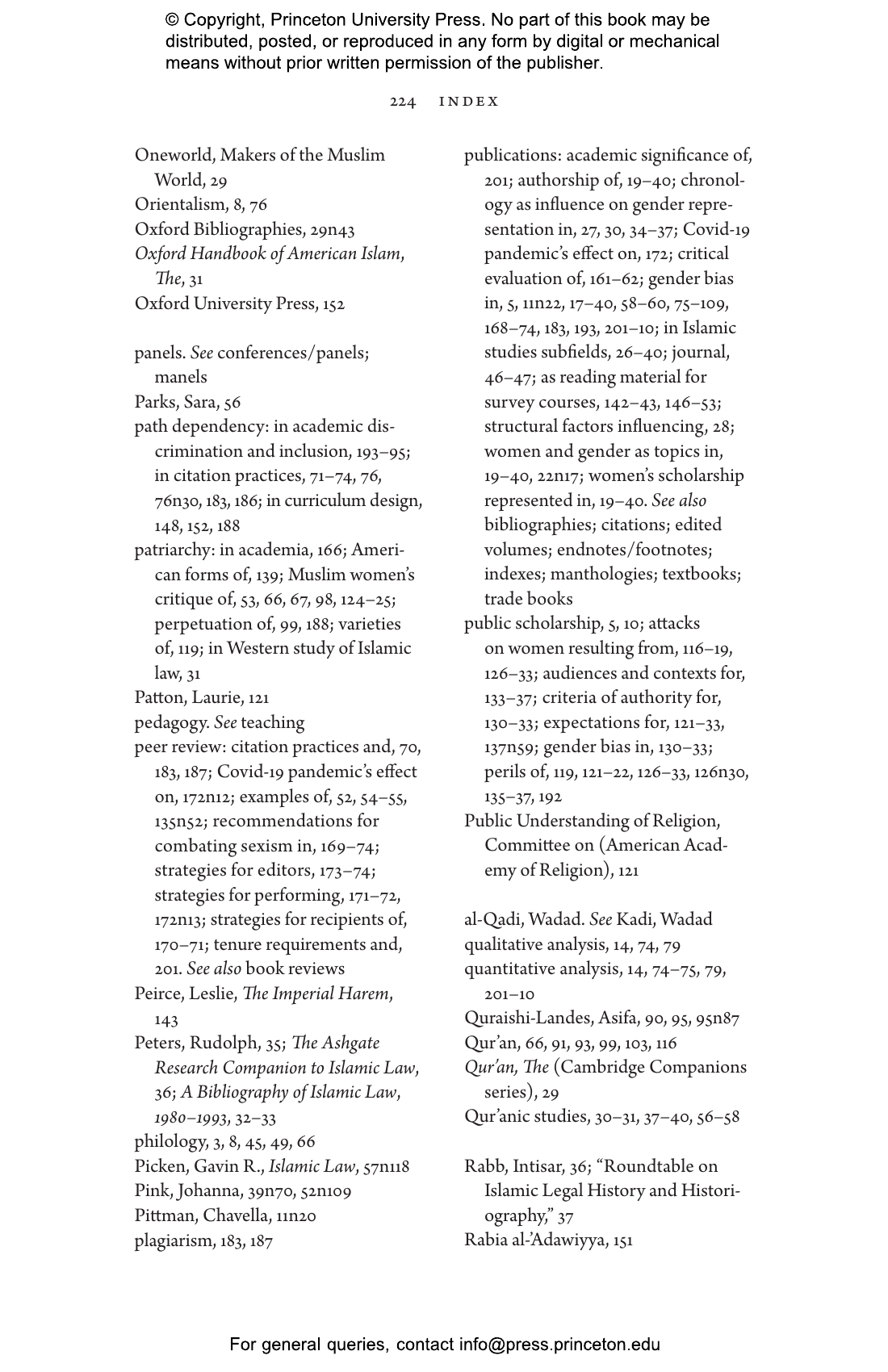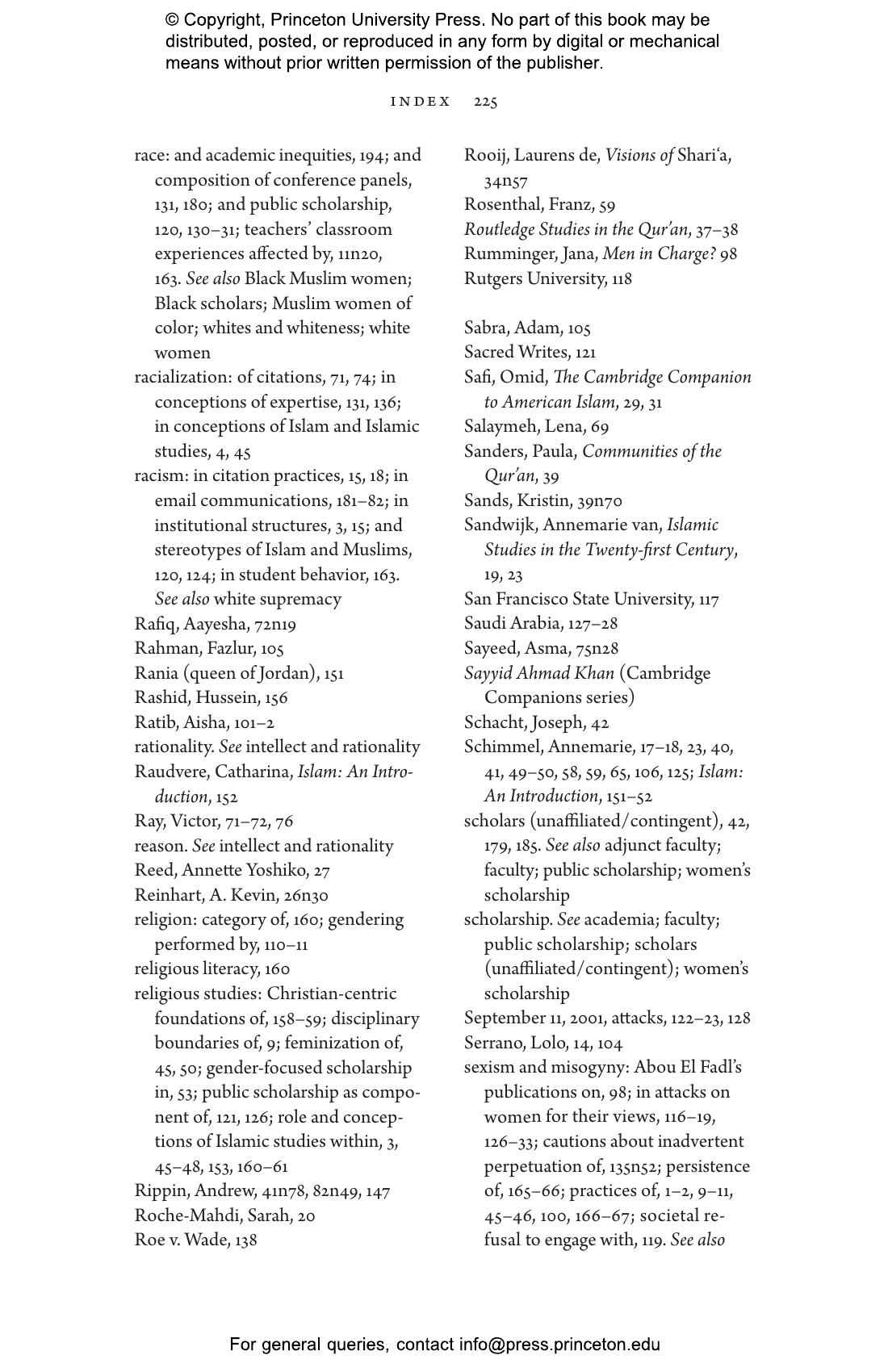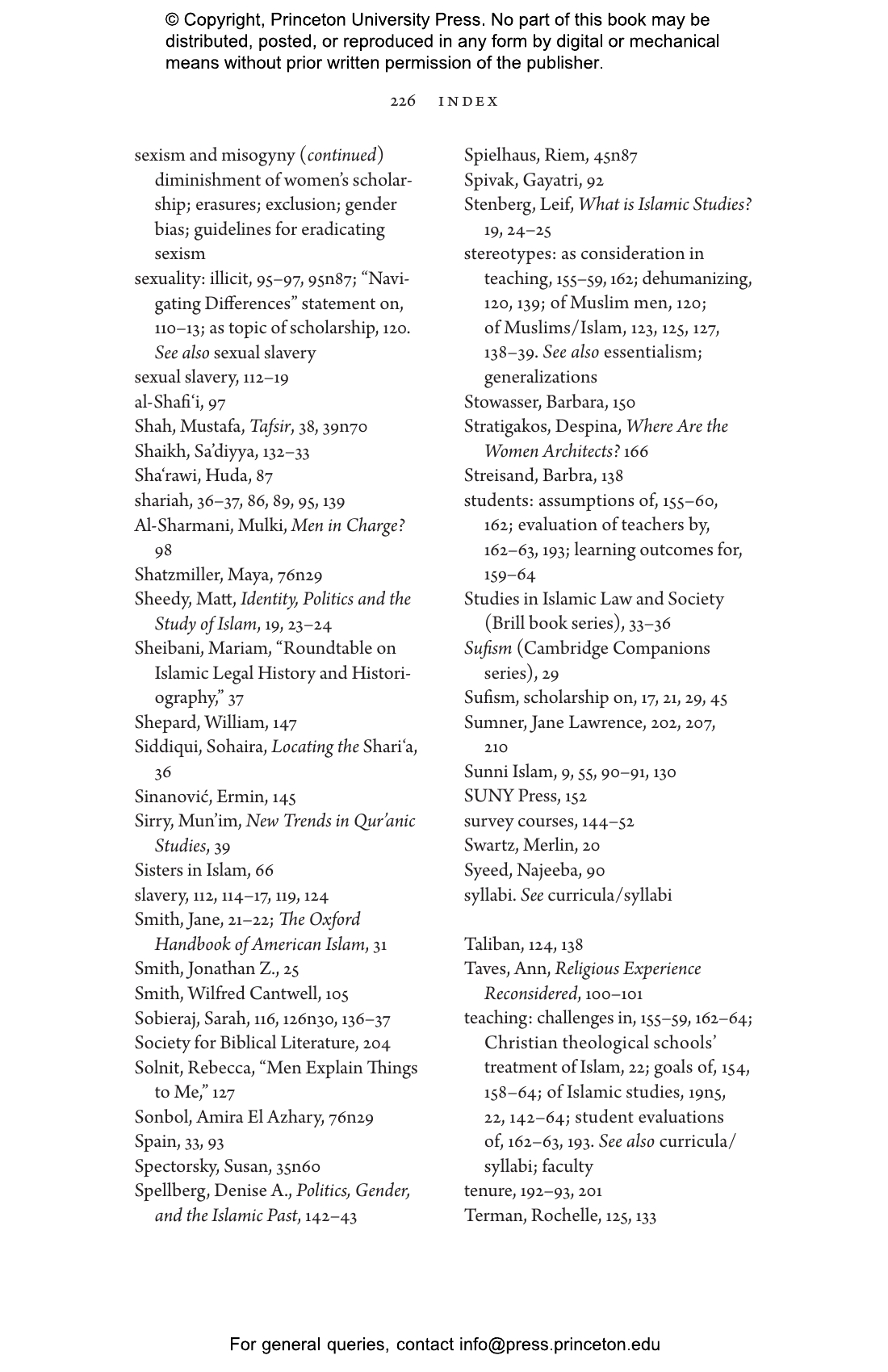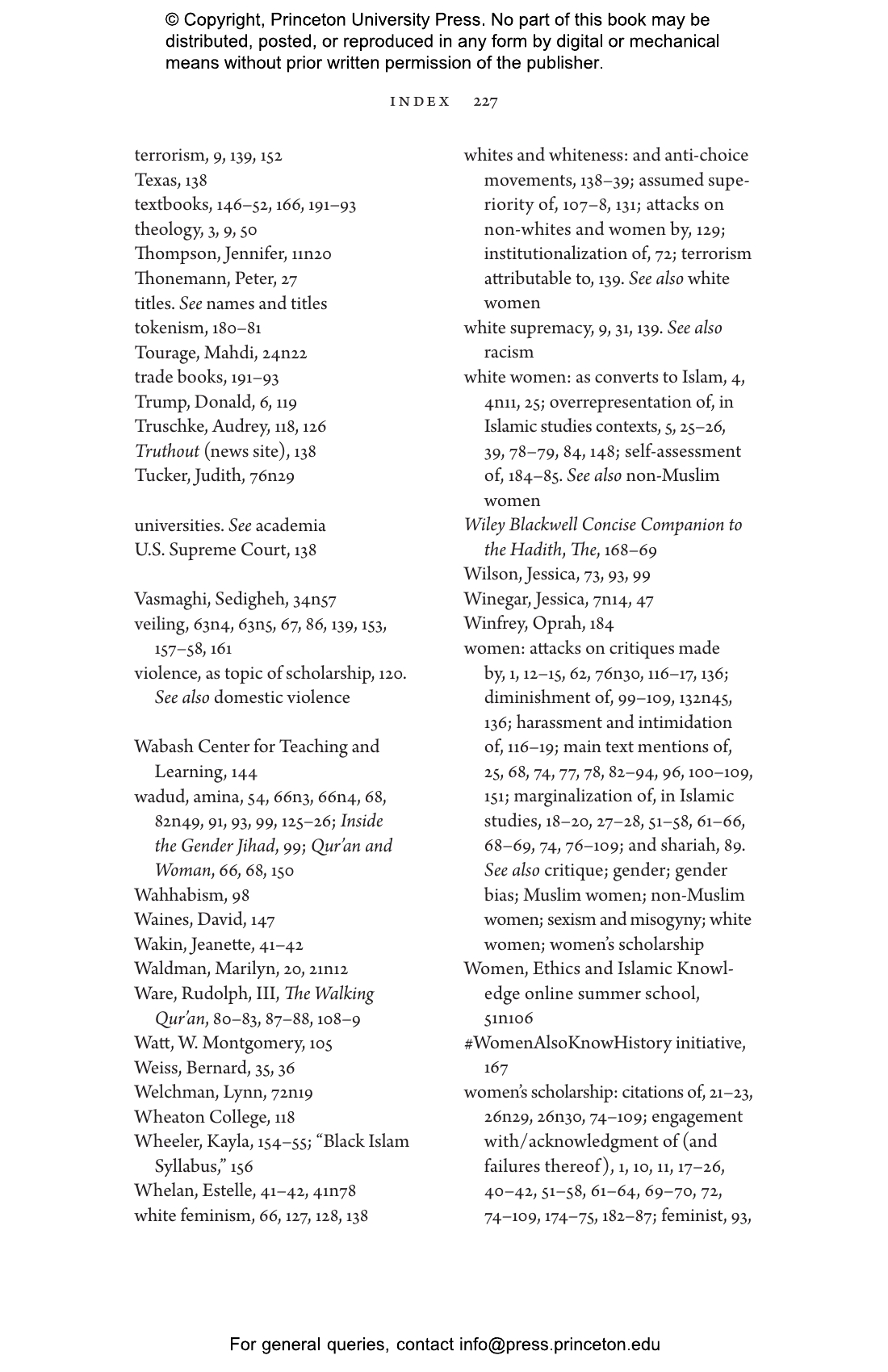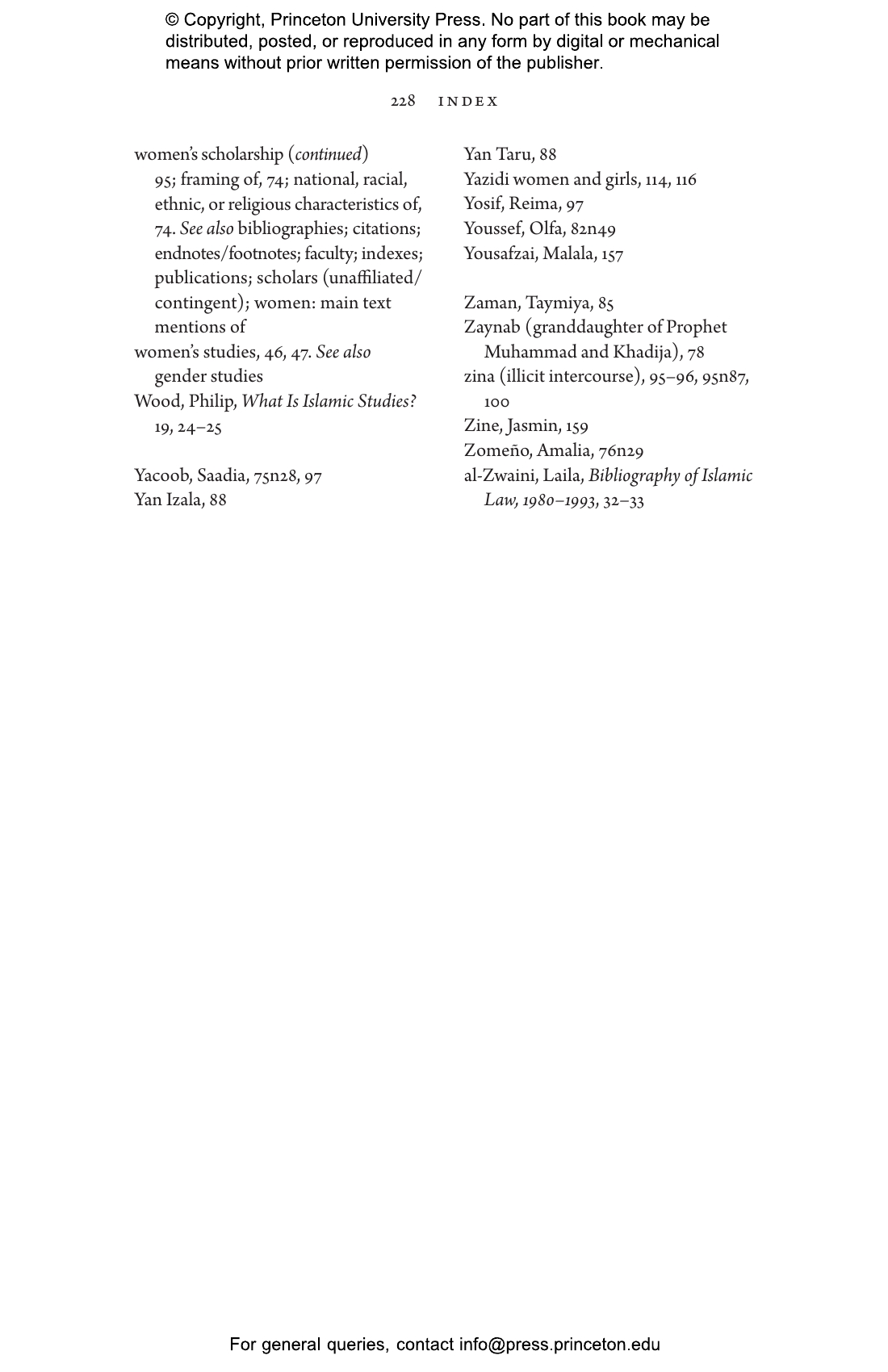Despite remarkable shifts in the demographics of Islamic studies in recent decades, the field continues to be dominated by men, who often relegate other scholars and their workÔÇöparticularly research on genderÔÇöto its periphery, while treating subfields in which men predominate as more rigorous and central. In The Woman Question in Islamic Studies, Kecia Ali explores the interconnected ways that sexism functions in academic Islamic studies. Examining publications, citations, curricula, and media representations, Ali finds that, despite the growth and depth of scholarship on Islam and gender, men continue to overlook womenÔÇÖs scholarship, even in work that purports to discuss gender issues. Moreover, media and social media dynamics make talking about Islam and Muslims for broader audiences especially fraught for scholars who are not men, particularly when the topic is gender or sexuality.
Combining broad surveys with more focused analyses of a smaller set of texts, Ali shows that textbooks and syllabi continue to exclude women as historical actors and scholars and to marginalize gender and sexuality as subject matter. Finally, she provides a ÔÇťBeginnerÔÇÖs Guide to Eradicating Sexism in Islamic Studies,ÔÇŁ offering practical strategies to help scholars avoid common pitfalls in their own work and contribute to broader professional transformations.
Kecia Ali is professor of religion at Boston University. She is the author of The Lives of Muhammad, Imam Shafi‘i: Scholar and Saint, Marriage and Slavery in Early Islam, and Sexual Ethics and Islam: Feminist Reflections on Qur’an, Hadith, and Jurisprudence.
"A crucial reading for any newcomer or expert in the field and excellent for anyone interested in understanding gender and academia beyond Islamic studies.. . . . Essential."ÔÇöChoice
“An indispensable guide to how scholars, researchers, students, and other interested parties can analyze scholarship on Islam past and present. The Woman Question in Islamic Studies is a text to be returned to repeatedly for what it portends for Islamic studies scholarship in the future.”—Aminah Al-Deen, DePaul University
“For anyone interested in the teaching of Islam and Muslims, Kecia Ali’s book is eye-opening and riveting. This book is essential reading for anyone invested in making their classroom the setting for transformative engagement.”—Zayn Kassam, Pomona College
“This is a beautifully written book that combines analytic rigor with an accessible style and the occasional devastating quip. It reflects astonishingly broad and deep reading, giving depth and texture to everything from its accounts of the professional travails of women scholars of previous generations to its analysis of citational politics.”—Marion Katz, New York University
“Ali has generated a remarkable amount of concrete data about the representation of women scholars’ work in Islamic studies. That is impressive enough—it is the backbone of the book—but Ali also draws on her considerable experience as a scholar in the field. To me, that is equally compelling evidence.”—Ellen Muehlberger, University of Michigan
This publication has been produced to meet accepted Accessibility standards and contains various accessibility features including concise image descriptions, a table of contents, a page list to navigate to pages corresponding to the print source version, and elements such as headings for structured navigation. Appearance of the text and page layout can be modified according to the capabilities of the reading system.
Accessibility Features
-
WCAG v2.2
-
WCAG level AA
-
Table of contents navigation
-
Single logical reading order
-
Short alternative textual descriptions
-
Print-equivalent page numbering
-
Landmark navigation
-
Index navigation
-
Epub Accessibility Specification 1.1
-
ARIA roles provided
-
All non-decorative content supports reading without sight
-
No known hazards or warnings


